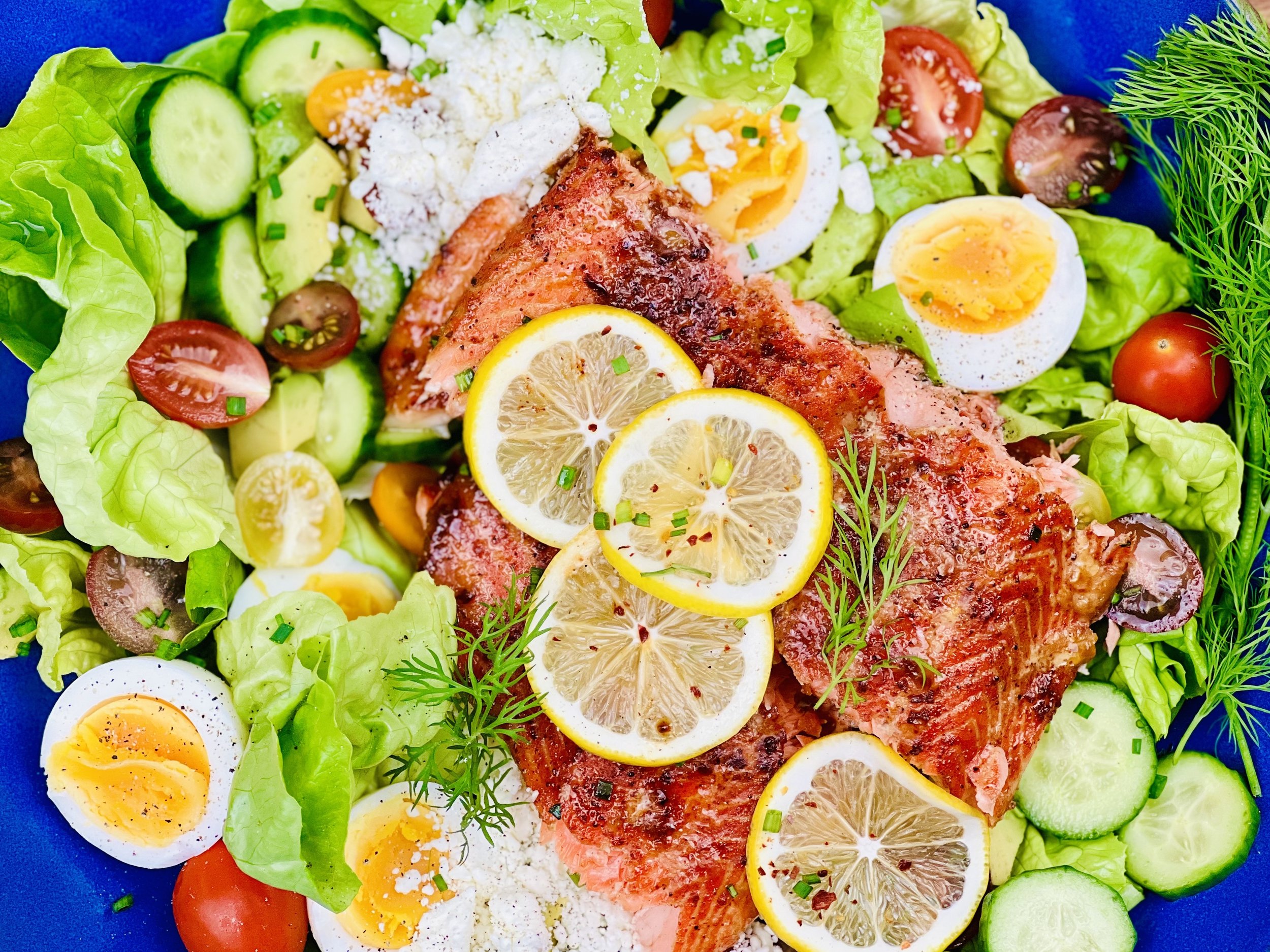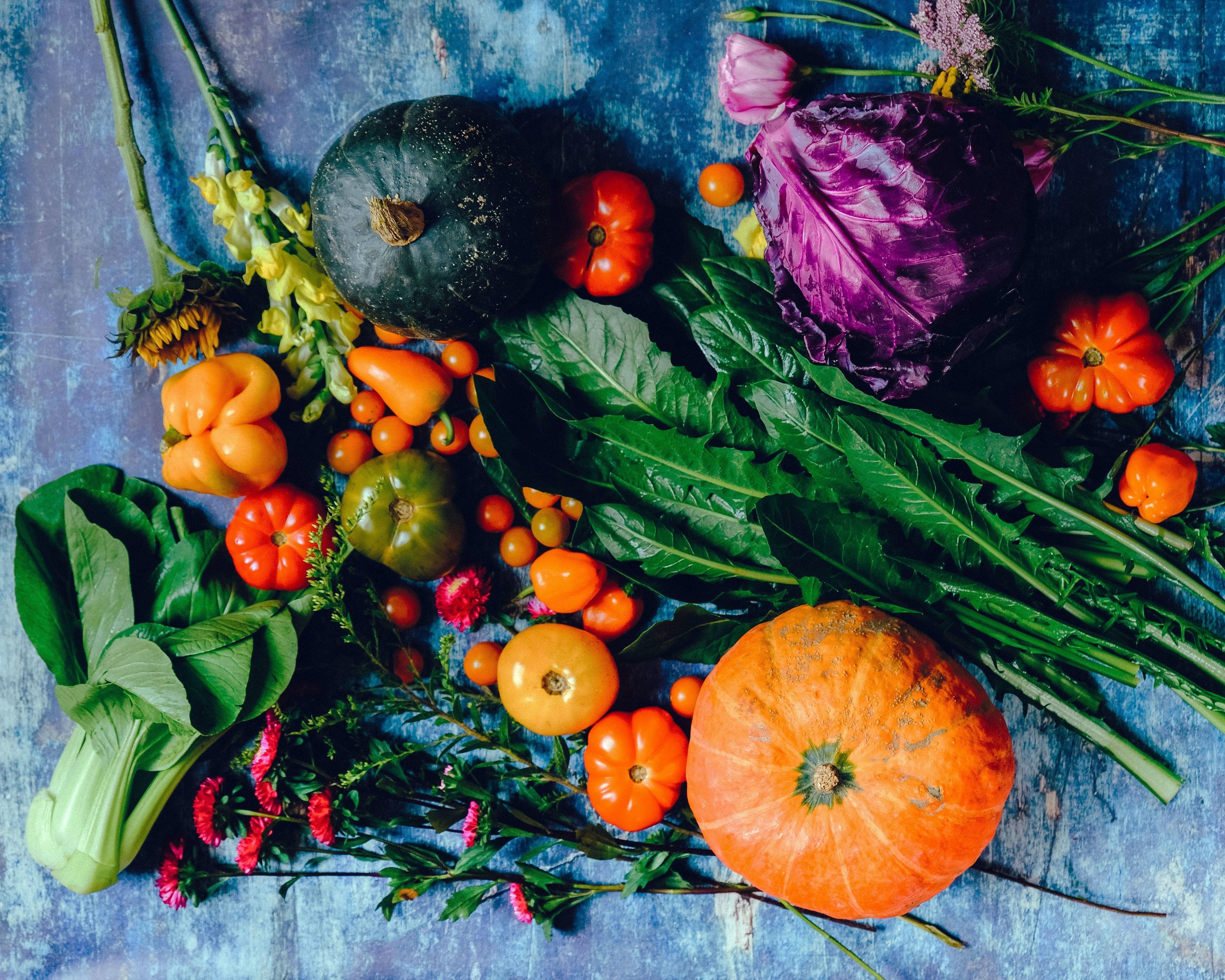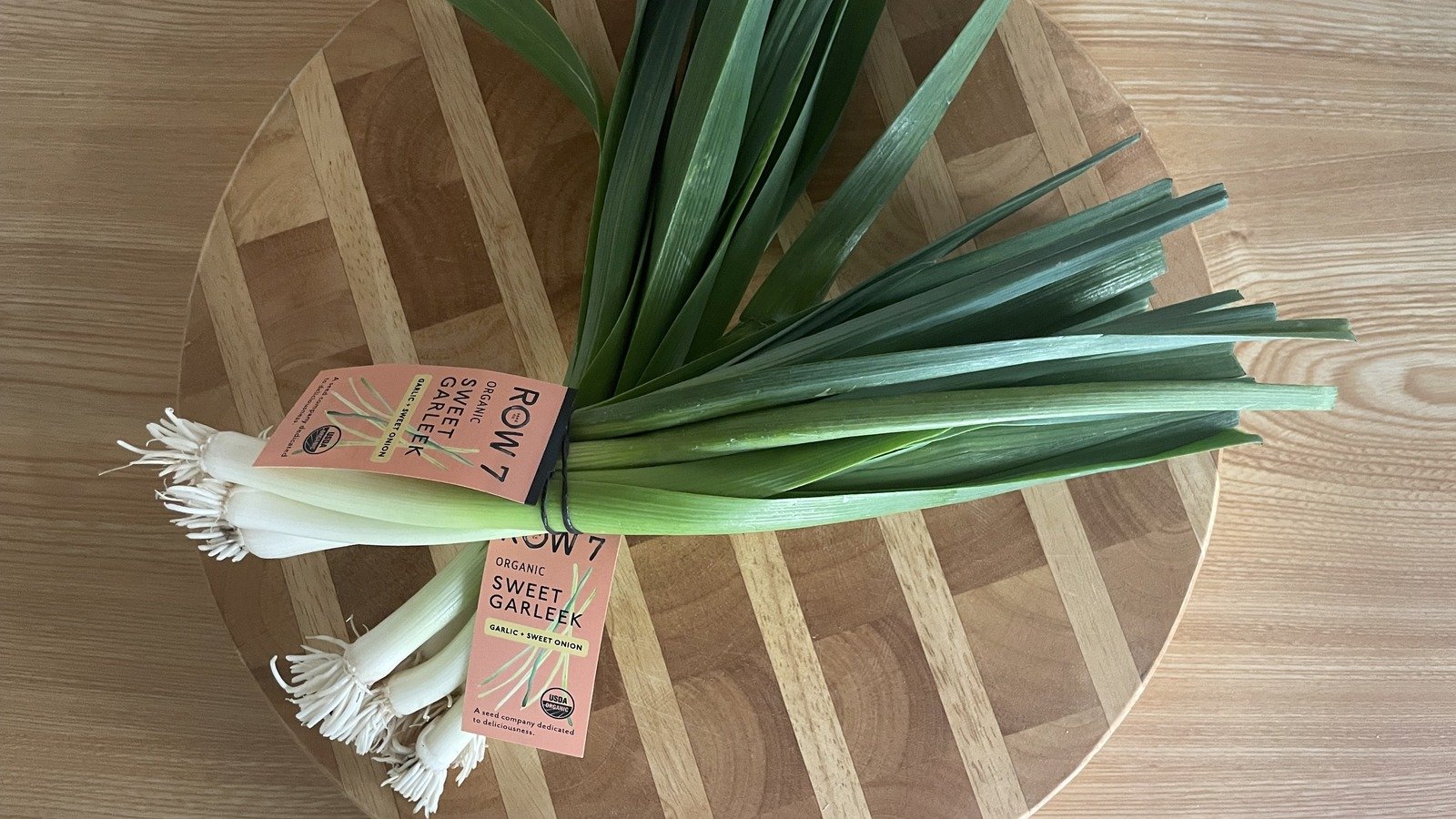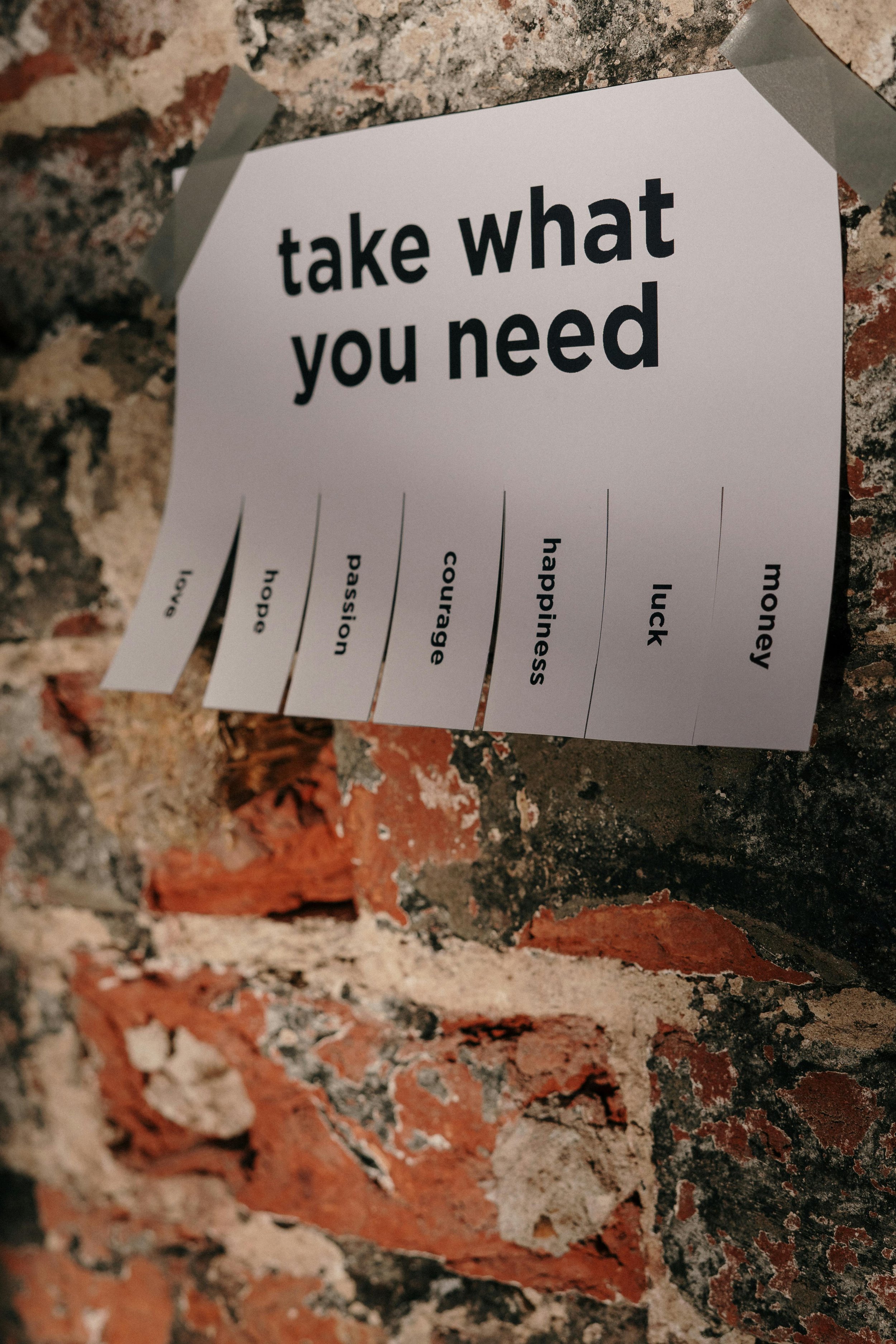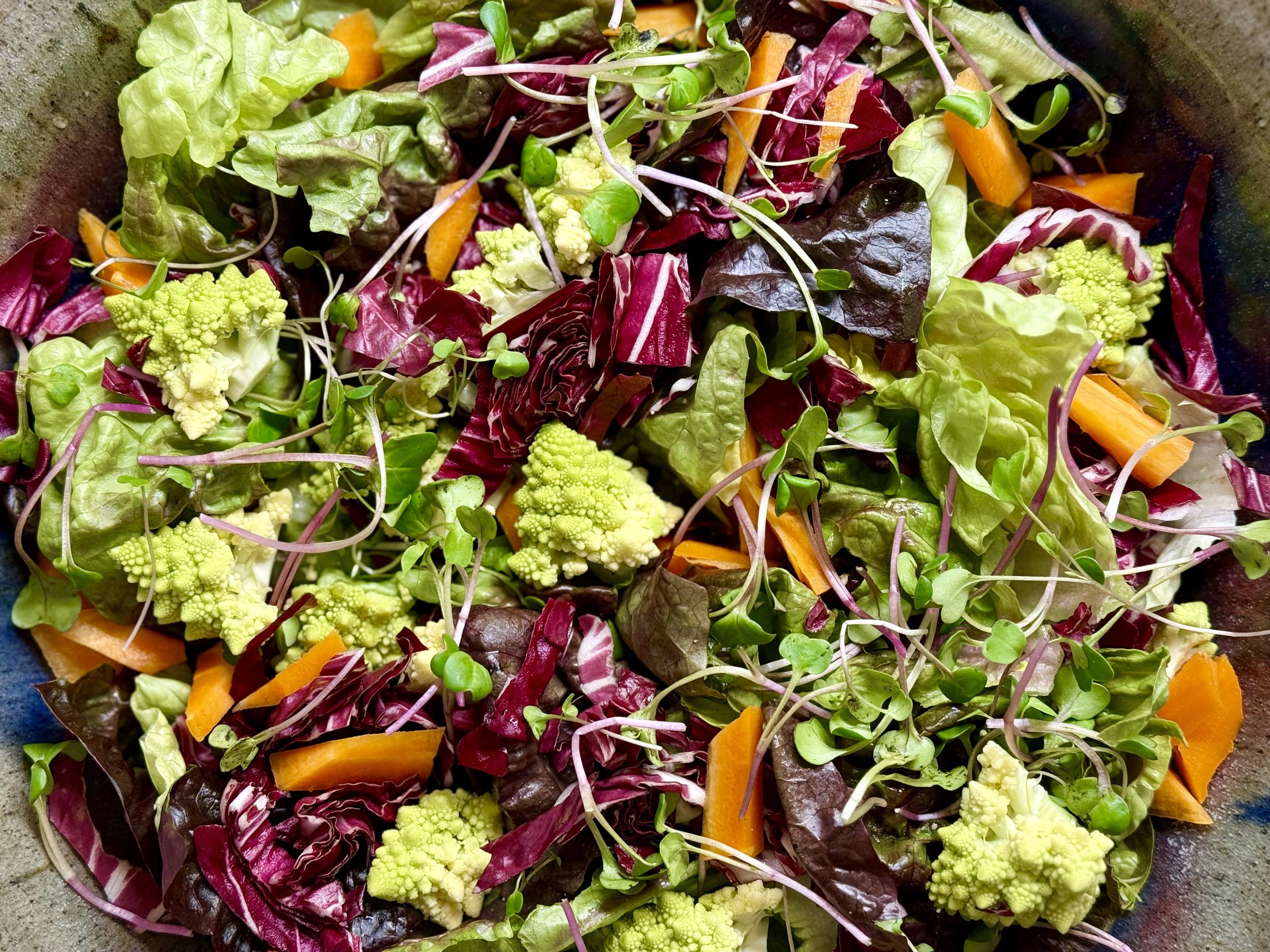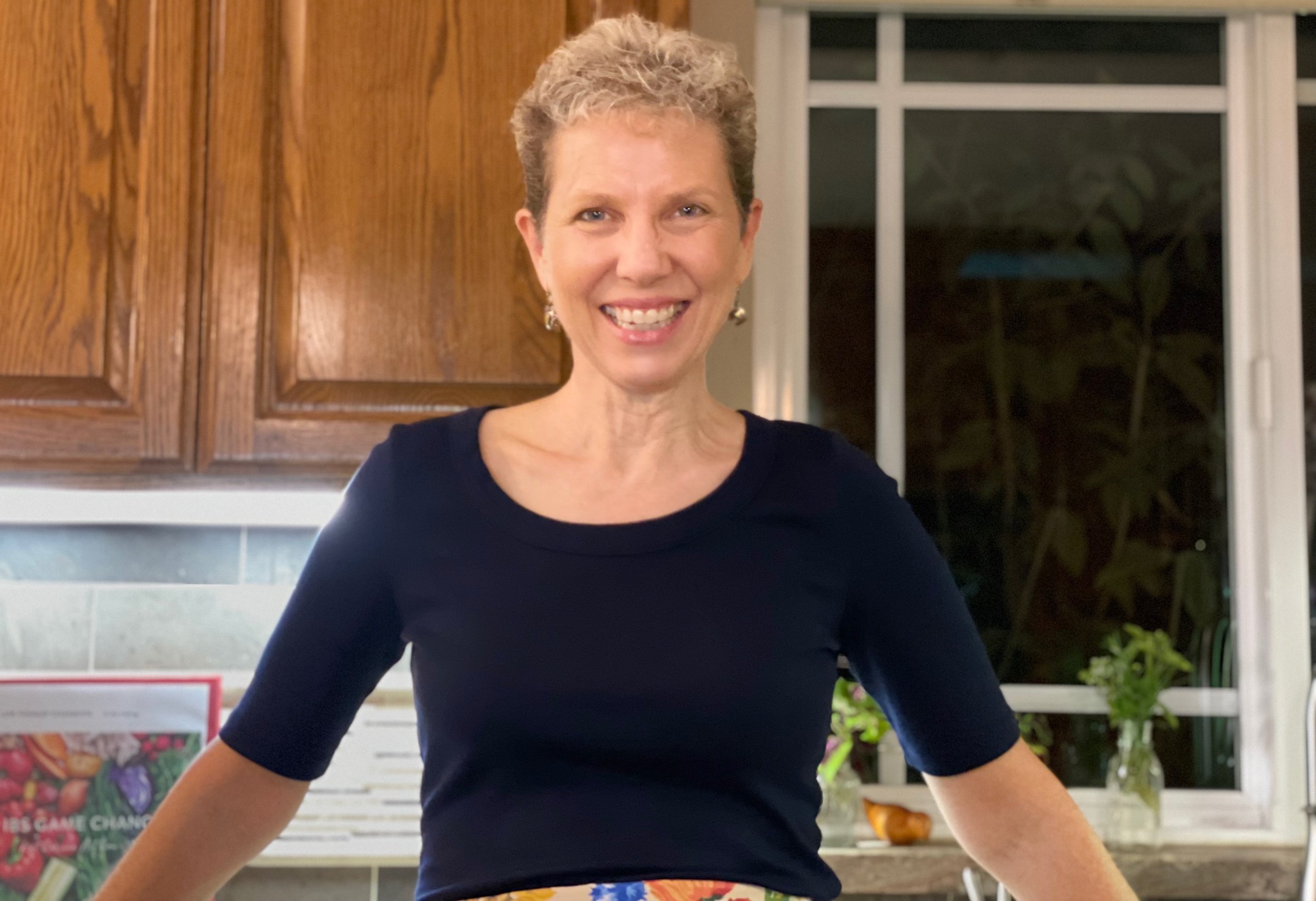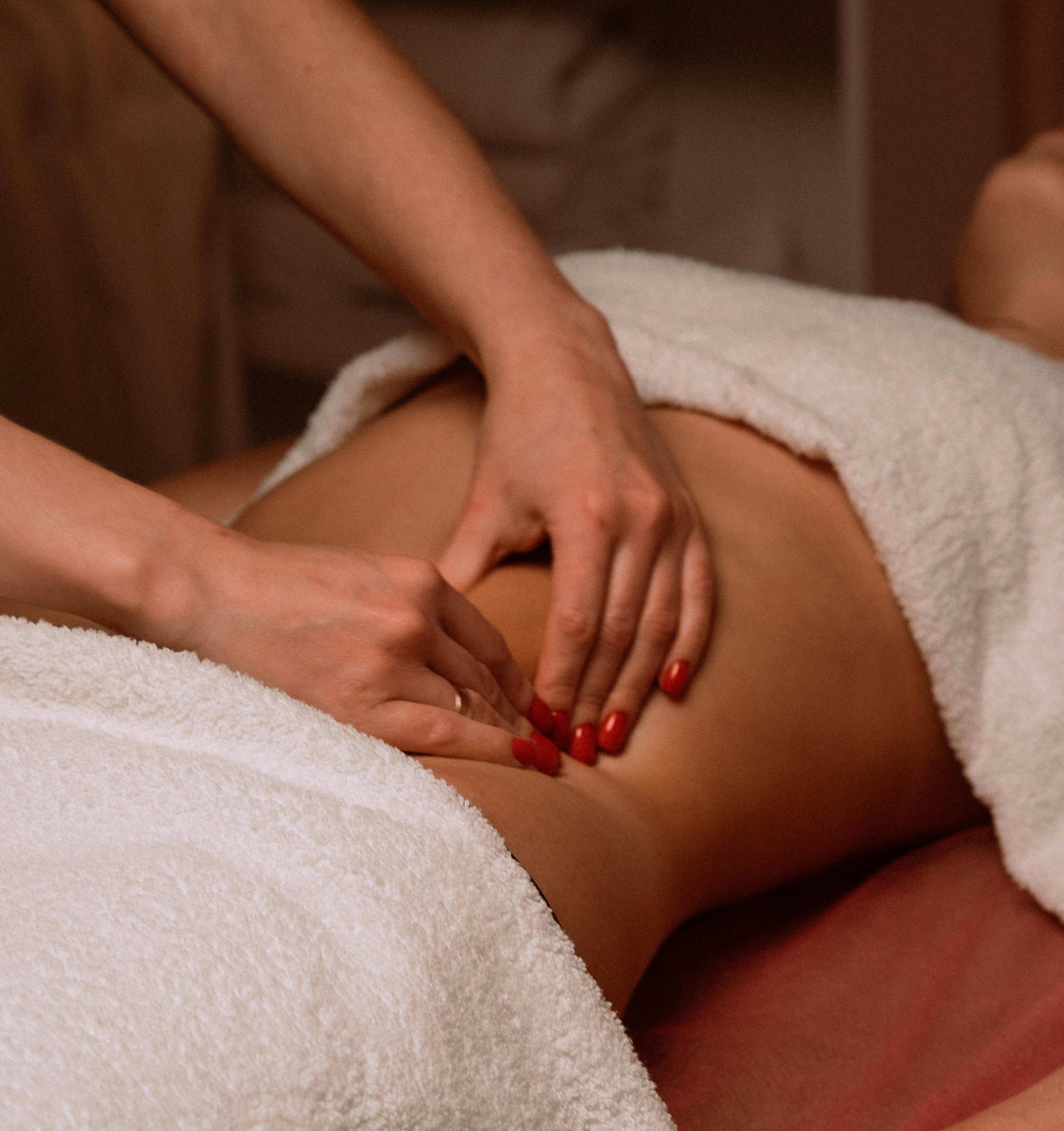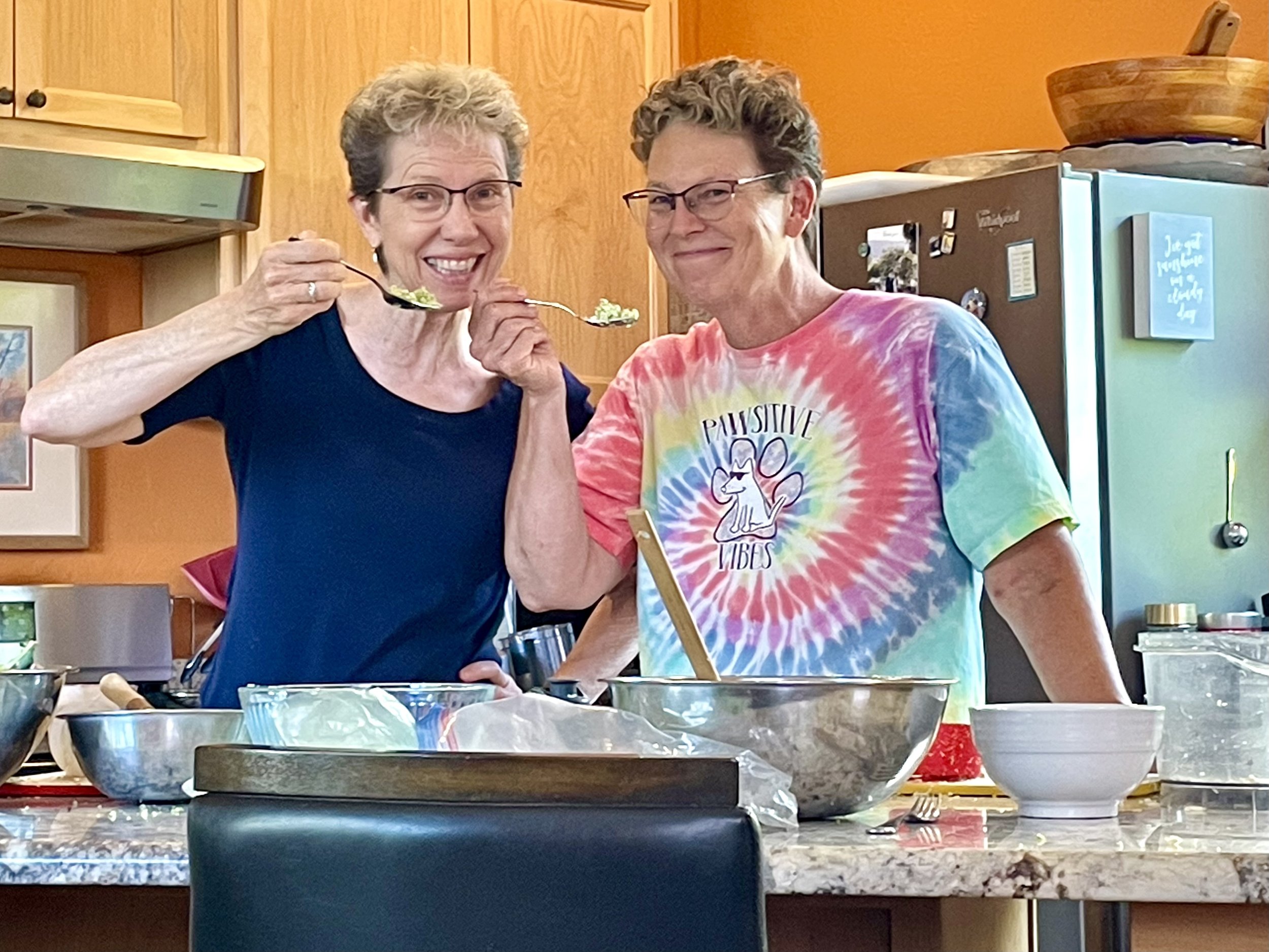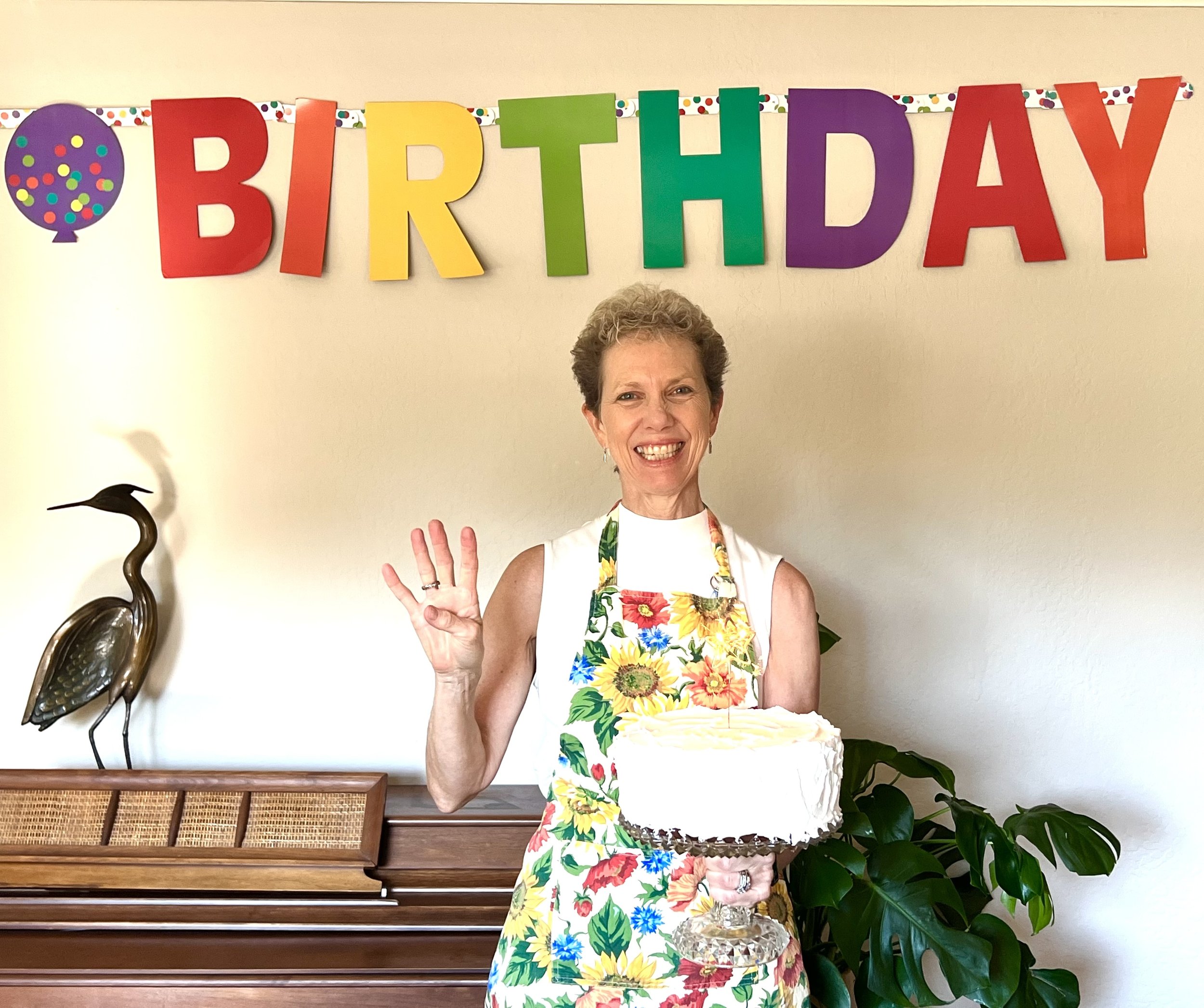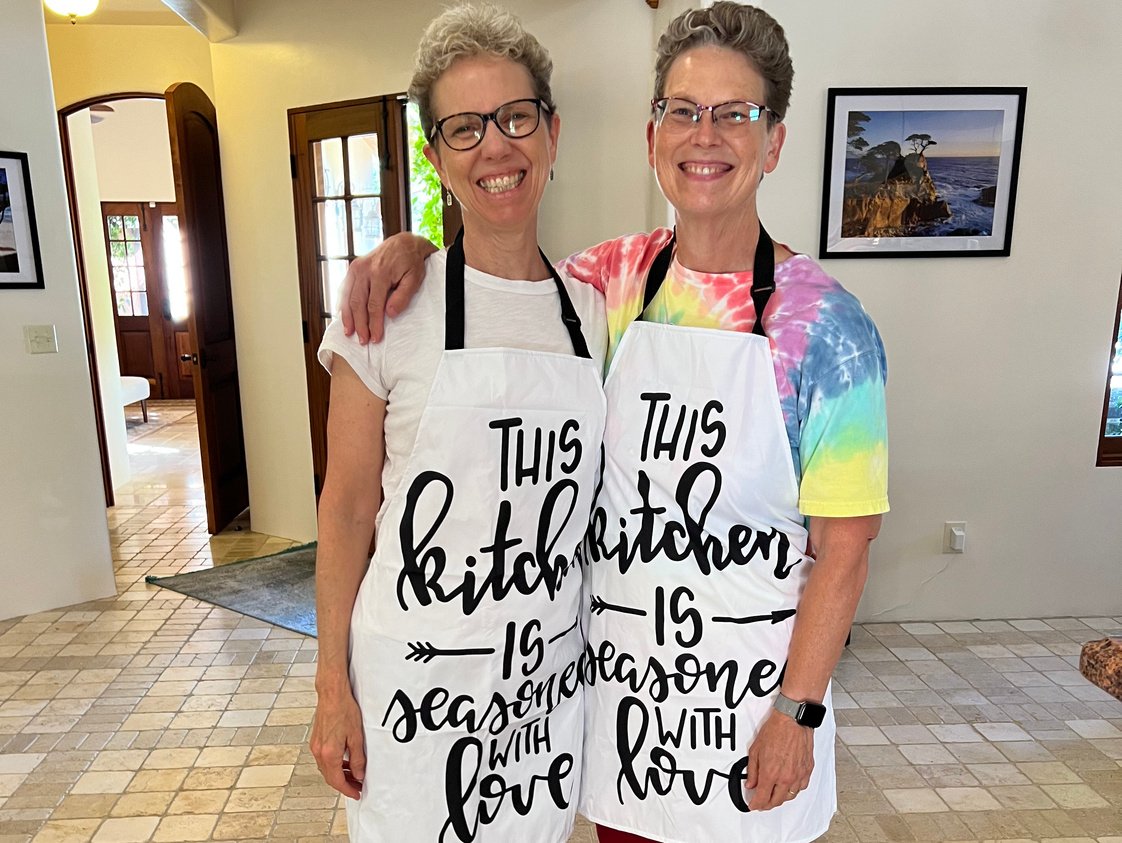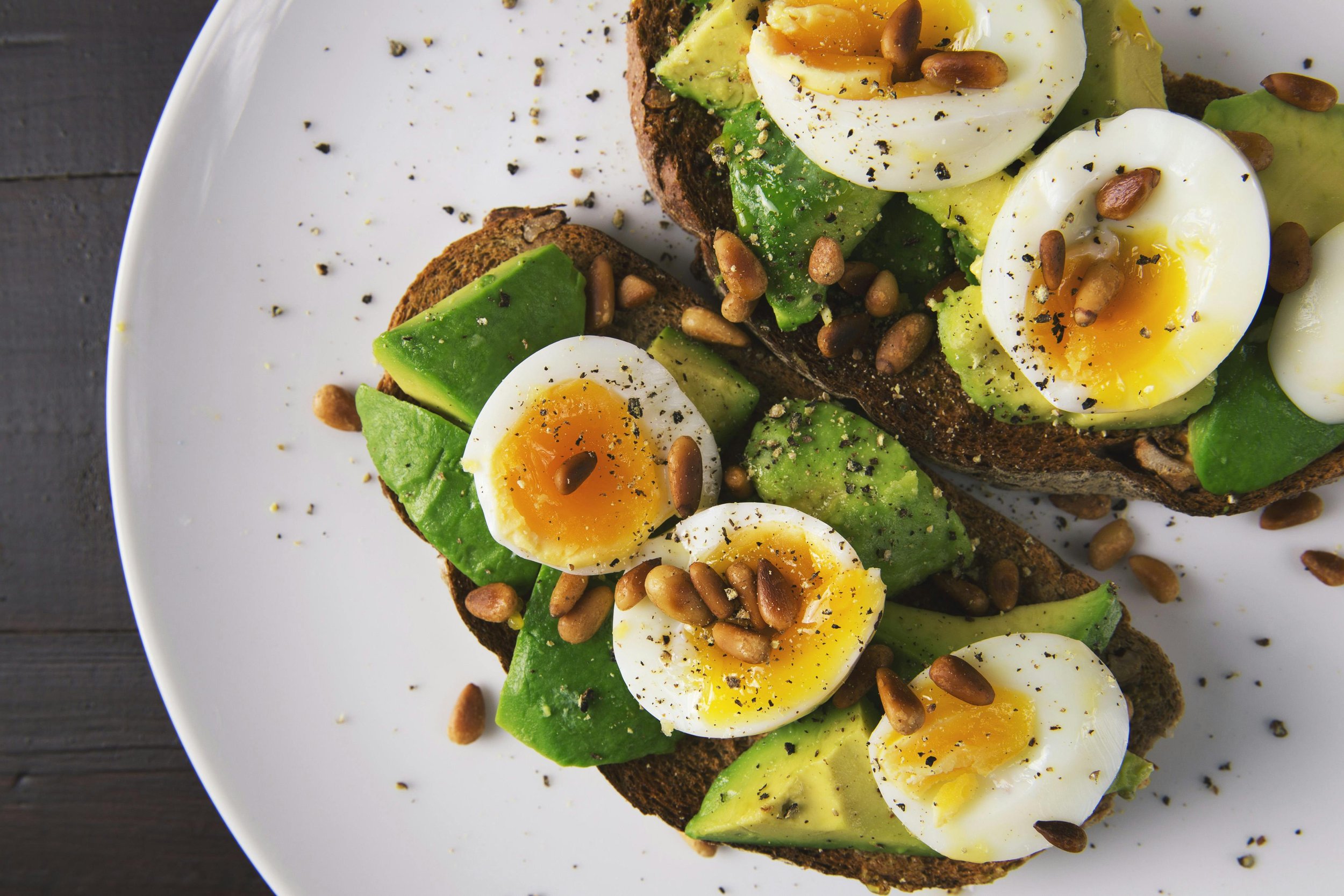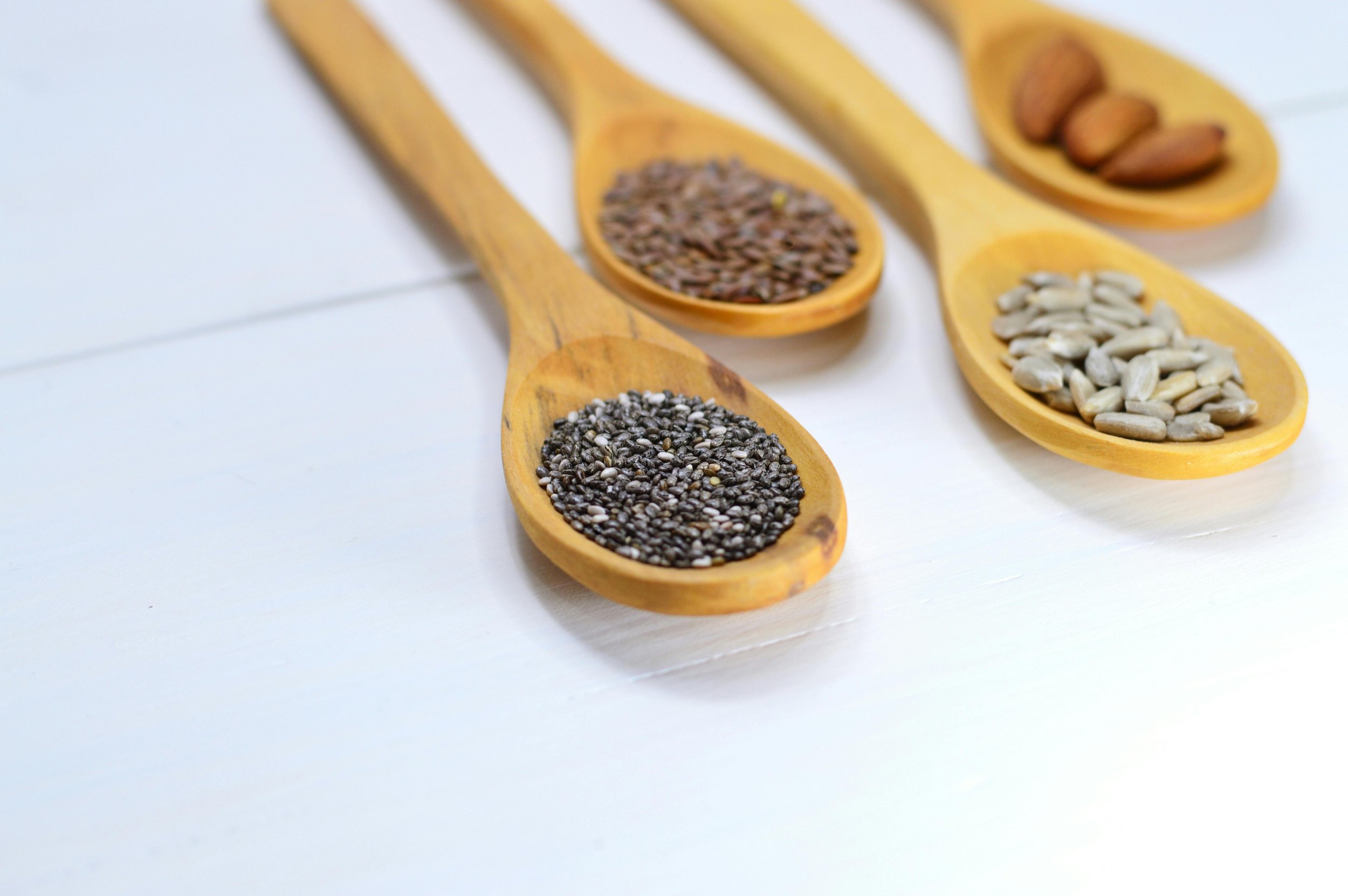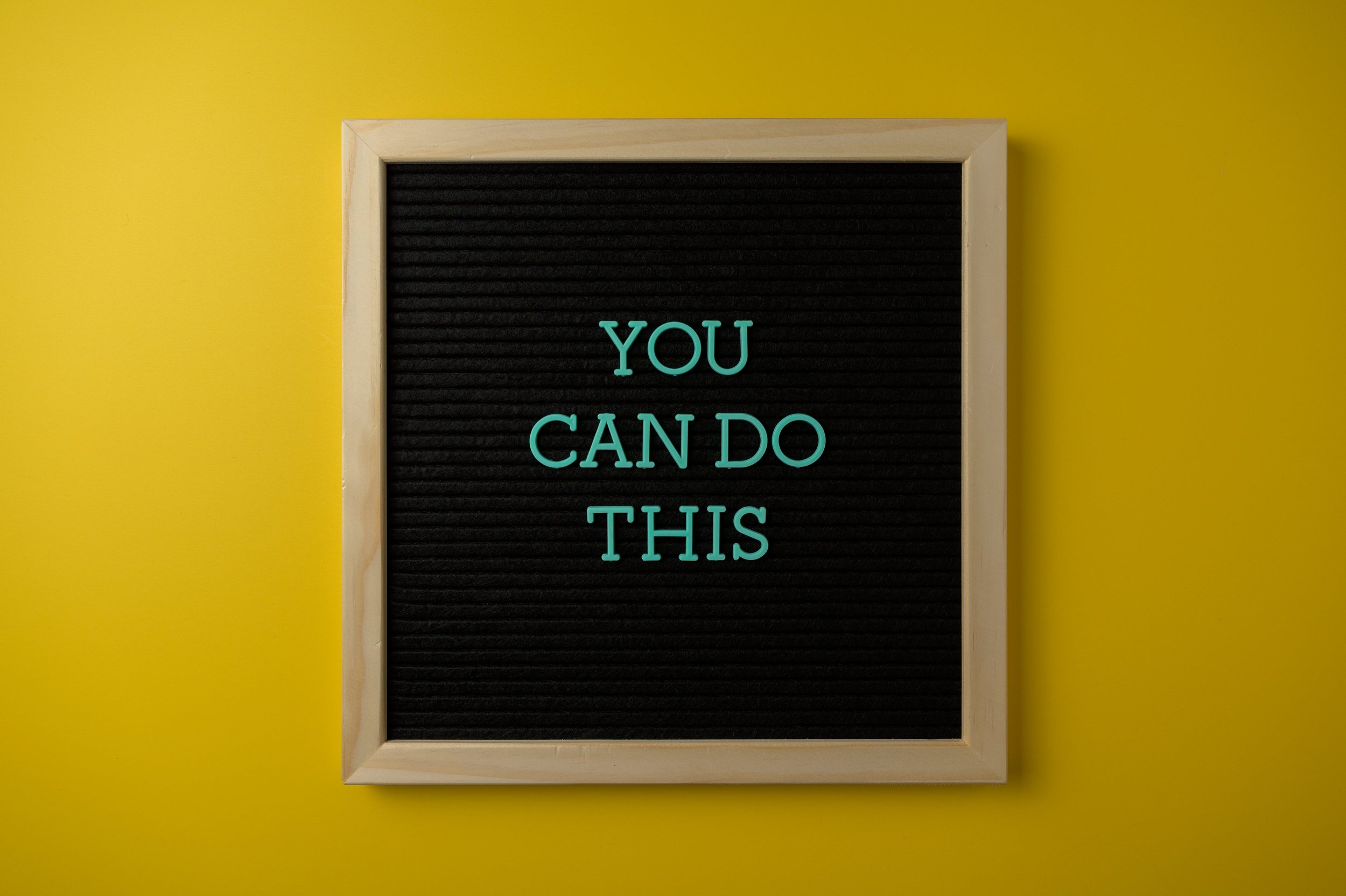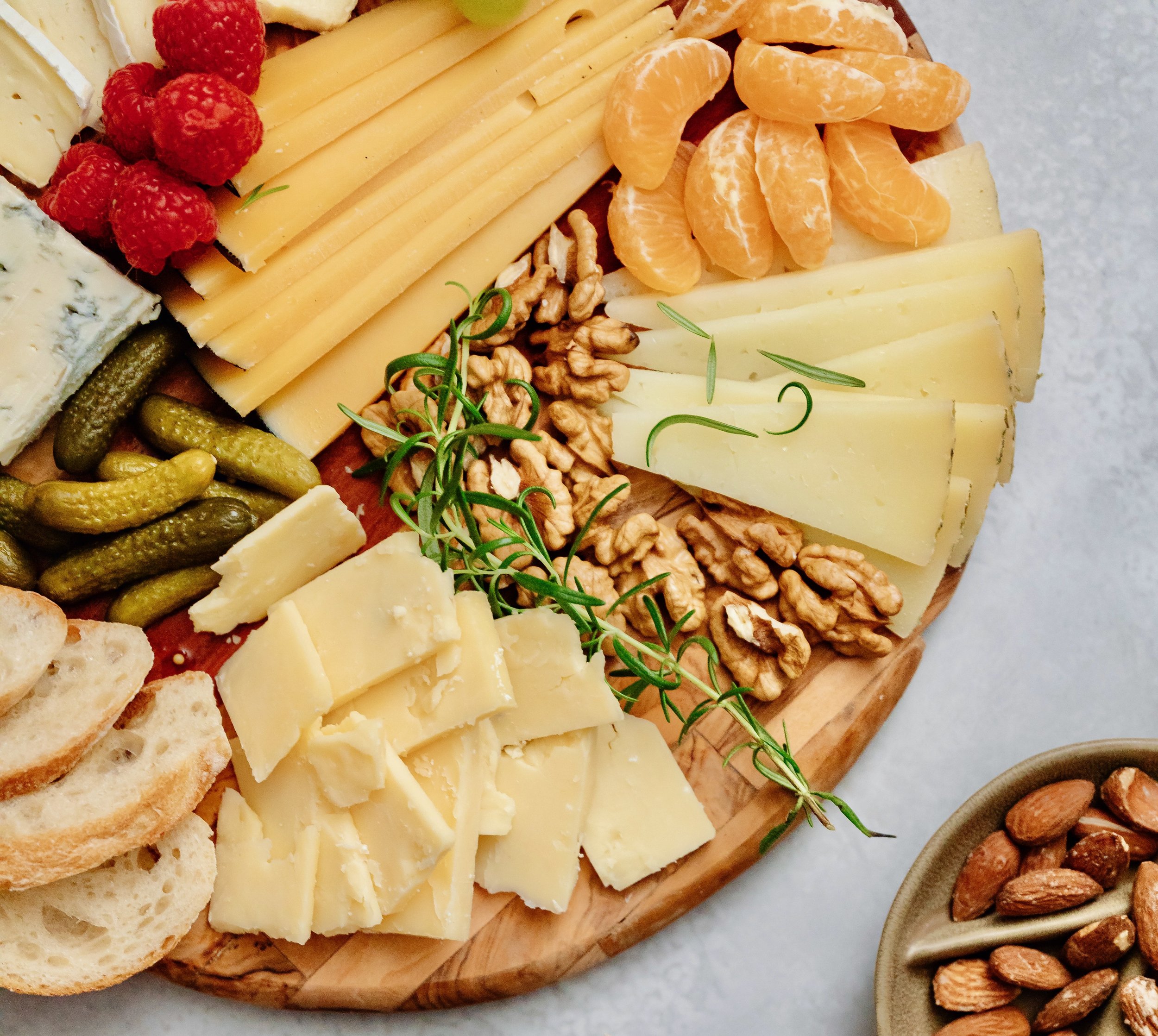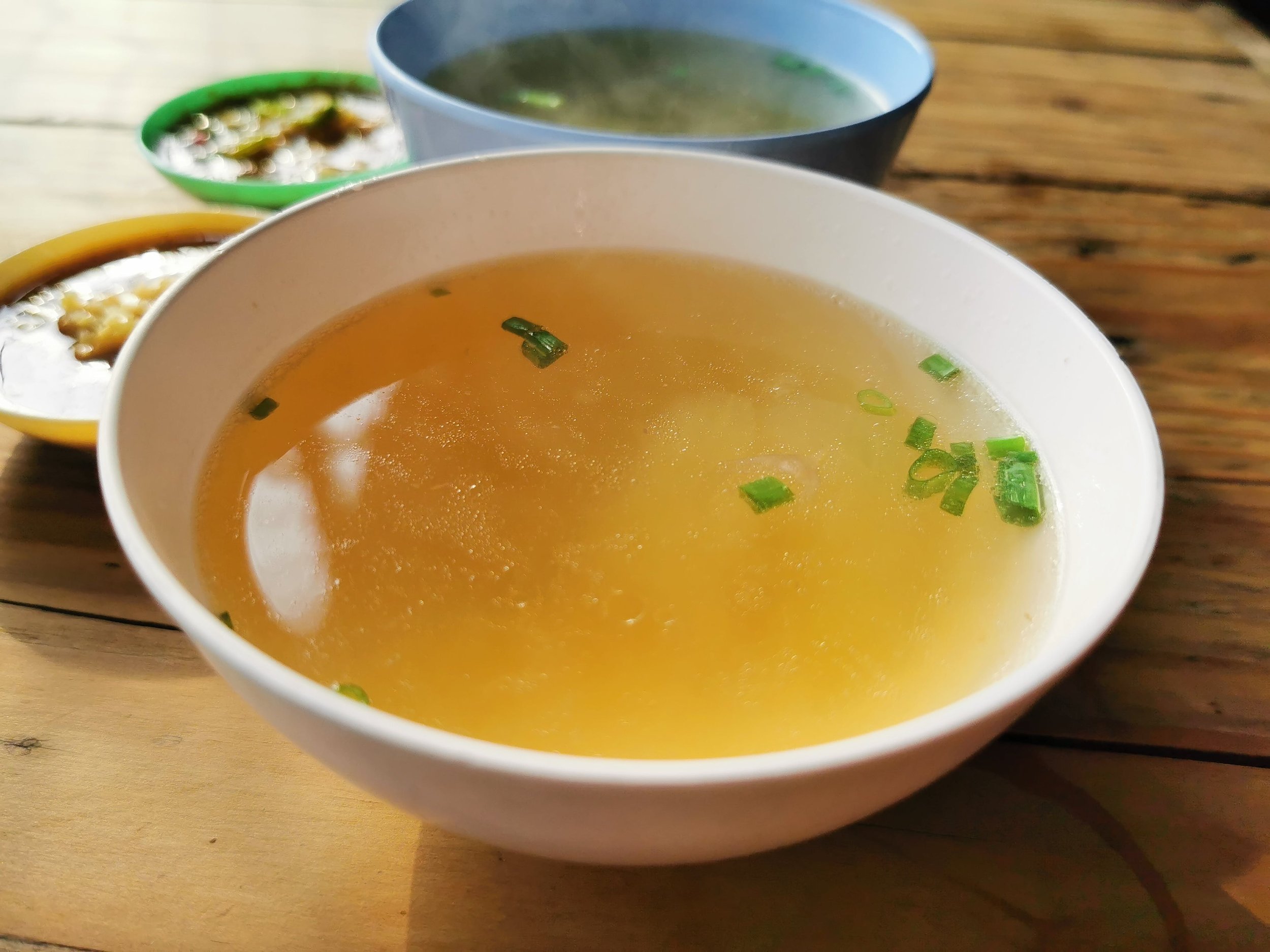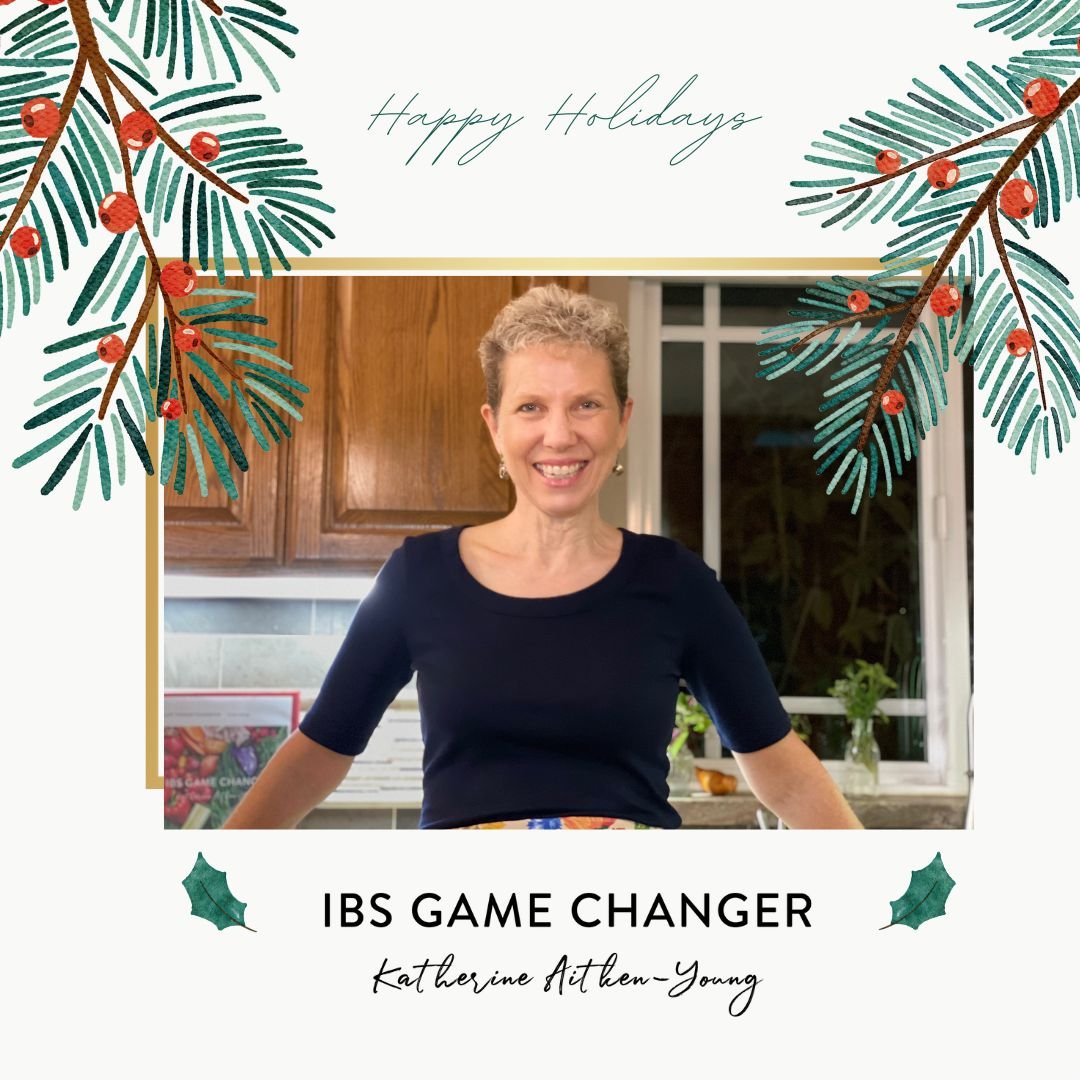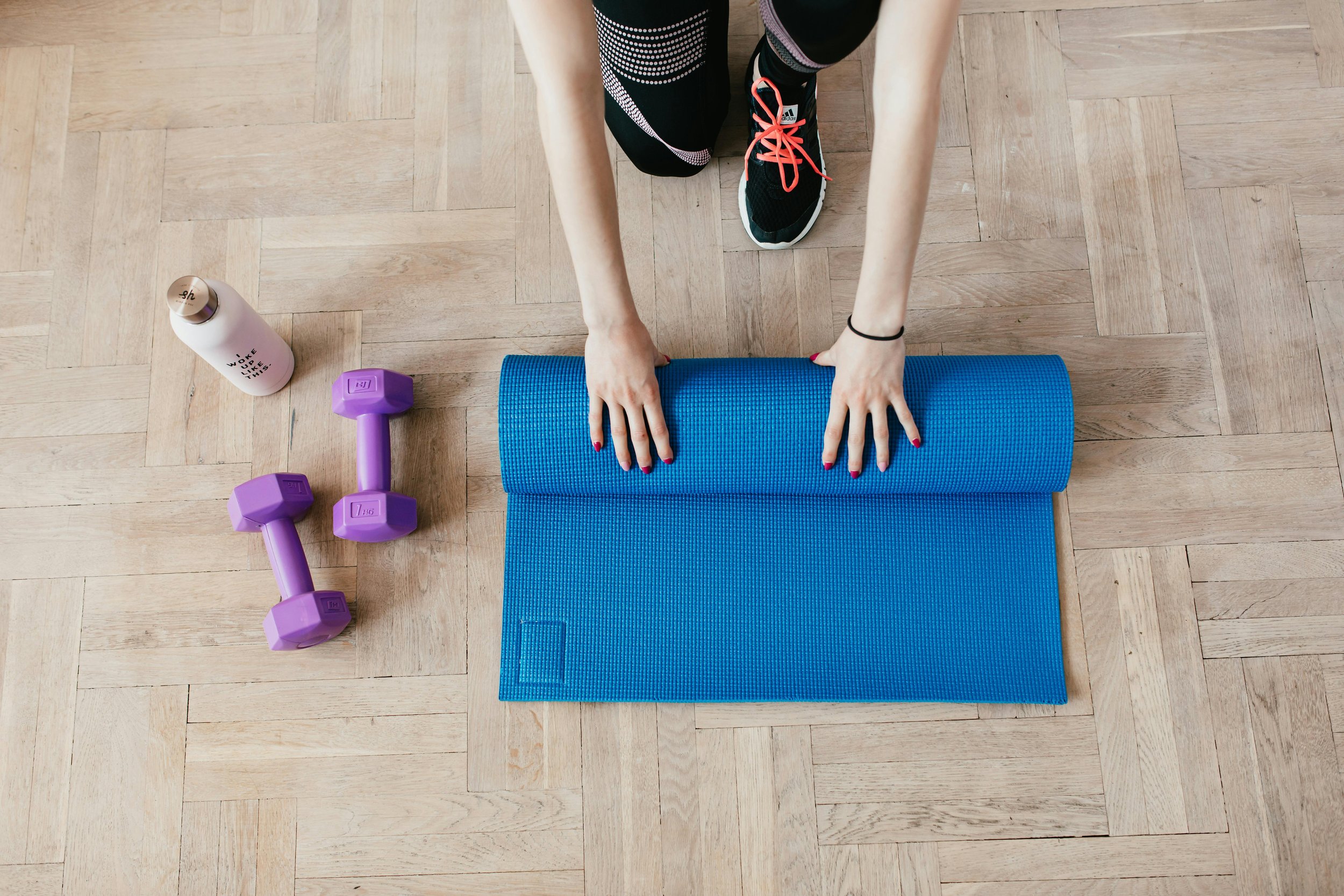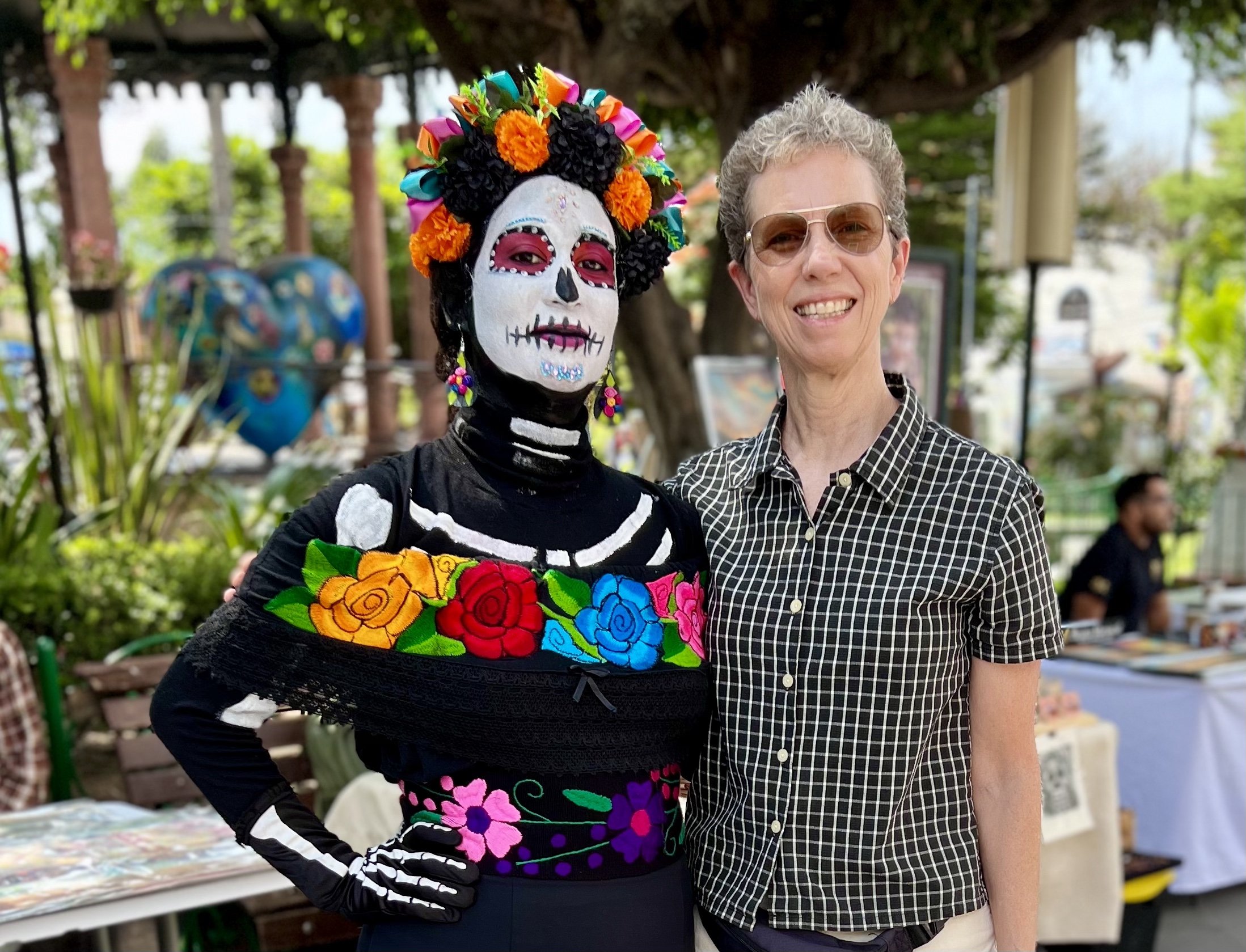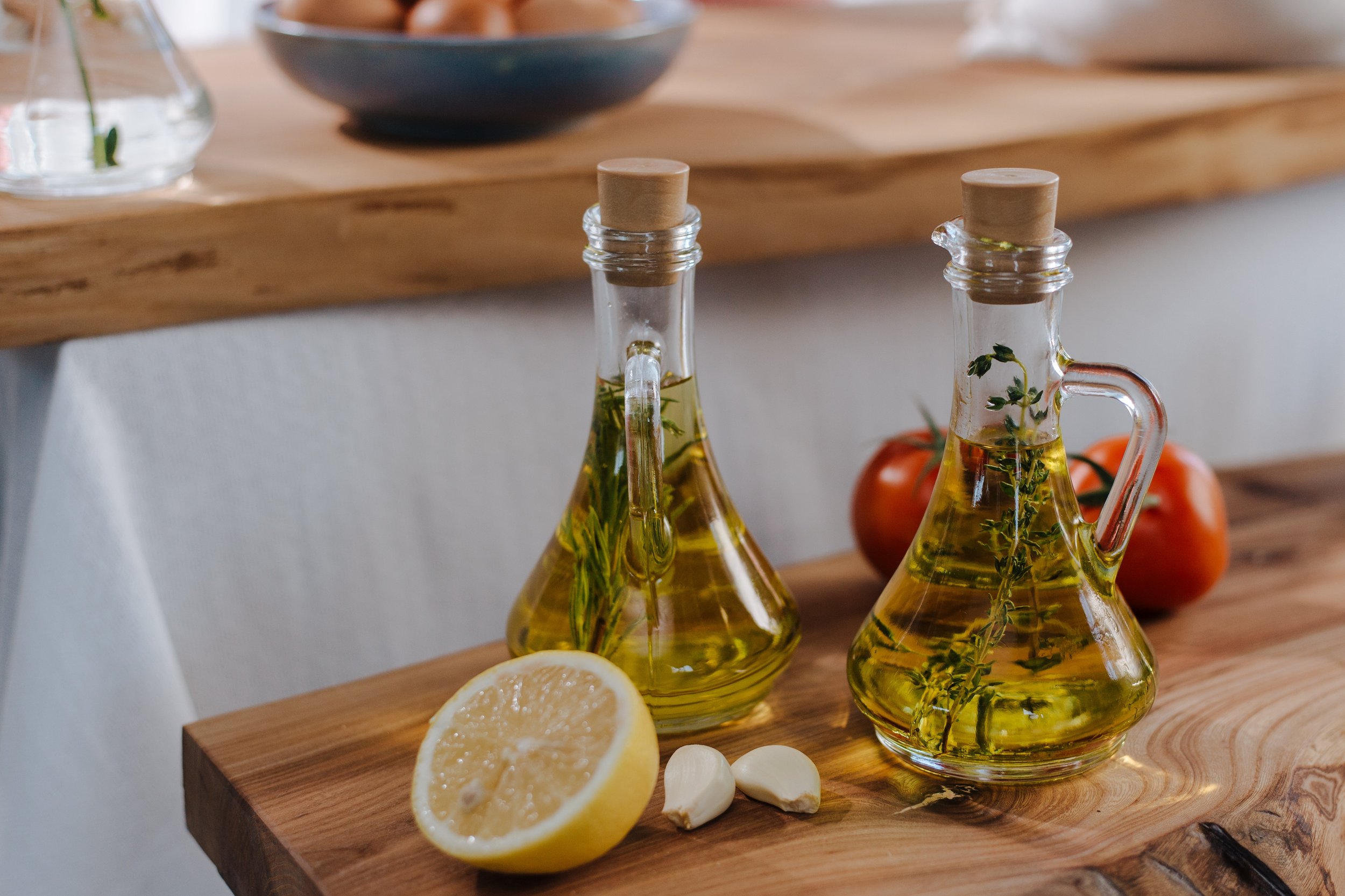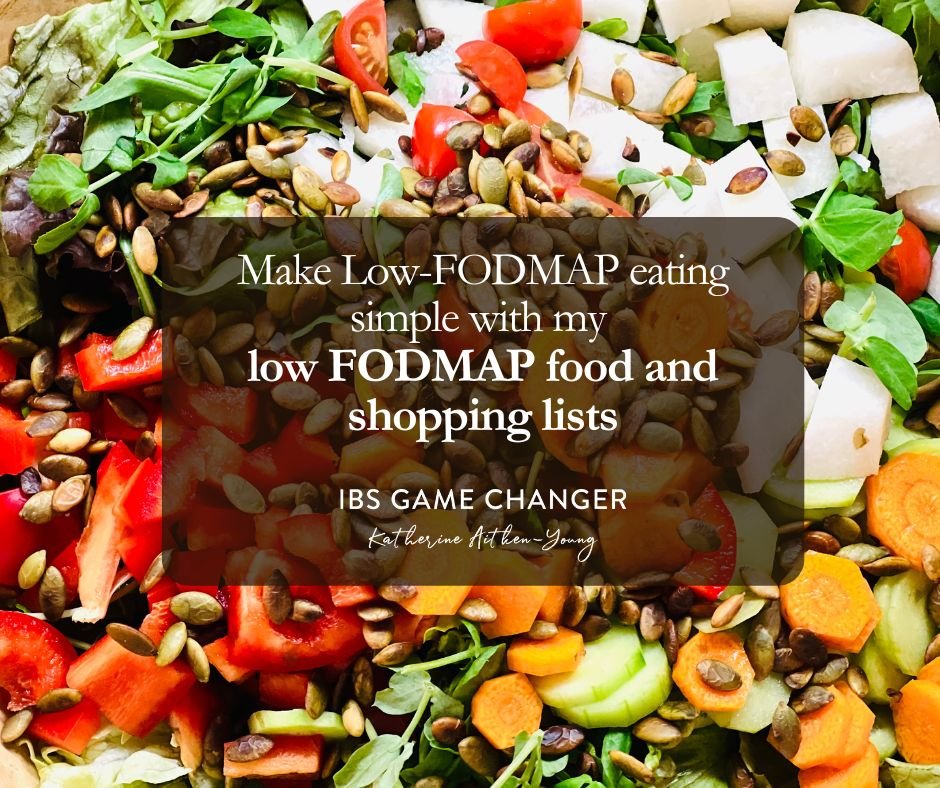Deliciously Low FODMAP
Inspire yourself with hundreds of delicious low FODMAP recipes, tips, and tools, and enjoy the abundance that is yours even when you have IBS.
Use the buttons and filters to find something specific or browse the complete collection for inspiration.
Discover a treasure trove of recipes with my FREE recipe club! Get new ideas delivered straight to your inbox every week.
Deliciously Low FODMAP is a trademark of IBS Game Changer, LLC
Filter to find Recipes and Tools
More Filtering Options
- All 735
- Appetizer 50
- BBQ 46
- Bowl 32
- Breakfast 58
- Cocktails 13
- Collection 1 58
- Collection 10 27
- Collection 11 30
- Collection 12 27
- Collection 13 31
- Collection 14 29
- Collection 15 31
- Collection 16 34
- Collection 17 31
- Collection 18 33
- Collection 19 36
- Collection 2 32
- Collection 20 33
- Collection 21 33
- Collection 22 40
- Collection 23 17
- Collection 24 1
- Collection 3 28
- Collection 4 29
- Collection 5 30
- Collection 6 32
- Collection 7 31
- Collection 8 31
- Collection 9 32
- Condiments 6
- Crock Pot 4
- Dessert 108
- Diabetes Game Changer Exception Protocol Contains Alcohol 11
- Diabetes Game Changer Exception Protocol Contains Flour 109
- Diabetes Game Changer Exception Protocol Contains Flour AND Sugar 77
- Diabetes Game Changer Exception Protocol Contains Sugar 49
- Diabetes Game Changer First Four Weeks 368
- Dinner 335
- Drink 8
- Easter 1
- Free Guide 17
- Gluten-free 596
- Gut Microbiome 2
- Guthealth 3
- Holidays 69
- IBS Triggers 4
- Keto Friendly 127
- Lactose-Free 175
- Low FODMAP Diet 721
Top 10 Strategies for Building a Healthy Gut Biome
How can you ensure your gut biome is in the best shape possible? I’ve put together the top 10 strategies to promote a healthy and diverse gut biome. Read on…
The gut biome, that intricate world of microorganisms within your digestive system, plays a vital role in your overall health. A balanced and thriving gut biome can influence everything from digestion to immunity and even mood. So, how can you ensure your gut biome is in the best shape possible? That’s a question lots of us are asking ourselves these days. With that in mind, I’ve put together the top 10 strategies to promote a healthy and diverse gut biome. Read on…
Your gut biome is a dynamic and influential part of your overall well-being. By following these top 10 strategies, you can help nurture a diverse and robust gut biome that supports your health in numerous ways. So, embark on this journey to a healthier you by prioritizing your gut health with these top ten strategies:
1. A Diet Rich in Fiber:
A diet that has an abundance of fiber from fruits, vegetables, whole grains, and legumes provides essential nutrients for beneficial gut bacteria. Fiber acts as fuel for these microbes, promoting their growth and diversity. When you promote the growth of the “good” bacteria, you leave less room for the “bad” bacteria to thrive and proliferate.
2. Probiotic Foods:
Probiotics are a big topic of interest here. Lots of people take a probiotic supplement, which is great if you happen to choose the right one for your unique gut biome profile. A better approach may be to incorporate probiotic-rich foods into your diet such as yogurt, kefir, sauerkraut, and even kimchi into your diet. These foods introduce live beneficial bacteria into your gut, bolstering its health.
3. Prebiotic Foods:
Prebiotics are non-digestible fibers that nourish the good bacteria in your gut. They're found in foods like cabbage, jicama, leeks, and sauerkraut (also in onions and garlic so if you can tolerate some of those, definitely keep them in your diet for the sake of your gut biome).
4. Diverse Diet with a “Target 30” mentality:
Variety is key. A diverse diet exposes your gut to different types of microorganisms and nutrients, fostering a more diverse and resilient gut biome. I have talked many times about trying to consume at least 30 different plants per week. If that’s your target then you’re surely going eat more than the standard set of 5 or 6 you’re probably eating now. Keep in mind, “plants” include nuts, seeds, grains, herbs, seasonings, veggies, fruits, and even plant-based oils so getting to 30 each week isn’t as hard as it seems!
5. Reduce Sugar and Processed Foods:
Excess sugar and processed foods can disrupt the balance of gut bacteria by feeding the bad bacteria which then crowd out the good guys. Minimize your sugar and processed food intake to support a healthier gut and a healthier you! Does that mean you can’t ever have your favorite dessert? No, it does not! It just means you aren’t going to have it every day. Focus on eating whole foods that you can recognize as food and you’ll find you’re less hungry for the processed stuff.
6. Fermented Foods:
Fermented foods such as miso, kombucha, olives, soy sauce, sourdough bread, and apple cider vinegar, to name just a few, are rich in natural probiotics and are great to incorporate into your meals. Make miso soup and dip some sourdough bread in it. Drink some Kombucha, which is readily available in multiple varieties on the grocery store shelves so you can a few you like and drink a small glass (you don’t need to drink the whole bottle) to get a delicious blast of probiotics. Isn’t that better than taking a handful of pills?
7. Manage Stress:
High stress levels have been proven to negatively impact your gut health. Actively incorporating practices to reduce your stress levels by doing such things as yoga, meditation, mindfulness, and other relaxation techniques, can help keep your stress in check (while offering many other benefits as well!)
8. Get Enough Sleep:
Quality sleep is essential for a healthy gut biome. To get the recommended 7-8 hours of restful sleep each night, make your sleep environment as conducive to sleep as possible. The ideal combination is a cool and totally dark room that is as quiet as possible. Even the smallest light (especially blue light) can disrupt your sleep so put tape over plugs and switches that light up. For even more sleep benefits, you can add such things as a weighted blanket, white noise if your environment isn’t quiet, and an eye mask if you can’t get the room fully dark. Definitely put any electronics that might disrupt your sleep in another room or at the very least on do not disturb mode. There’s lots more to sleep hygiene but the bottom line is to develop a sleep routine that works for you and then do it every night.
9. Regular Exercise:
Physical activity can positively influence your gut health. It doesn’t have to be a long sweaty session at the gym. Just get out for a walk at least once, if not several times, a day. Can’t (or don’t want to) walk? Then do some exercises in your chair: March your legs, raise your heels, lift some weights, or just stretch. There are so many different forms of exercise that will benefit you and there seems to be an equally large number of excuses as to why we can’t find time to do any of them! Your whole body will thank you for adding regular exercise to your routine.
10. Avoid Overuse of Antibiotics:
We live in a society that likes to push pills as the answer to everything. So, when you end up at the doctor with a cold virus that has been with you for a week, it’s natural to think a round of antibiotics will be just the thing to put you right. Truth be told, most viruses take about 10 days to run their course. So, if you start taking antibiotics after a week, it’s easy to imagine that’s what’s making you better when most likely the virus is just running its course. While antibiotics are essential for treating actual bacterial infections, overuse can harm your gut biome. Take them only when prescribed by a healthcare professional and only when they are truly indicated to cure whatever you have going on.
Adopting some of these strategies is sure to make a difference in your overall health and the health of your gut biome. All of them are accessible, easy to add to your routine, and in many cases, delicious! Need help navigating the changes needed to improve your gut biome and get your IBS under control? Feel free to set up a consult with me right here.
Have a question you’d like to have answered? Email me at hello@ibsgamechanger.com
More Deliciously Low FODMAP™ Tips and Tricks
Feeling a bit blue? You’ve got to move it move it.
Exercise is free, doesn’t require any special equipment, and if we don’t put too many barriers in our own way, it’s also easy.
When you’re feeling down and out sometimes getting up and out is the last thing you want to do. But did you know, for most of us, moving your body in some form (any form!) of exercise can be just as good as taking an anti-depressant in terms of the positive results you get?
Just a little exercise can help reduce both depression and anxiety because it makes your brain happy! How does it do that? Regular exercise causes your brain to release endorphins and other natural brain chemicals that enhance your sense of well-being and make you FEEL GOOD!
Exercise is free, doesn’t require any special equipment, and if we don’t put too many barriers in our own way, it’s also easy.
Don’t like running, lifting weights, going to the gym or playing basketball? There are other ways to get your heart pumping! Try putting some happy tunes in your ears and dancing, get outside and do some gardening, wash your car, go for a walk around the block.
Anything that gets you out of your chair, off the couch, out of bed, away from your digital screen, and moving can help improve your mood.
You “don’t have time” to exercise? You don't have to do it all at once! Break up your day with some “sneaky exercise.” Going upstairs? Go up and down five times instead of only once! Going to the post office, hardware store, grocery store? Ride your bike, walk, or at least park your car in the furthest parking spot instead of the closest one.
Find activities you enjoy, and look for “sneaky exercise” opportunities to make sure that you move your body in some capacity every day. Your body and mind will reward you many times over.
Get the Dirty Dozen Triggers Guide and Master Your Gut!
Get the FREE Dirty Dozen IBS Triggers Guide to Learn How to Master Your Gut!
Knowing what triggers your IBS can mean the difference between having symptoms and not having symptoms. Do you know what's tying your gut in a knot? Grab our free guide and find out, not only what might be triggering your symptoms, but also, what you can do about it!
Grab my free guide and get started putting YOU back in the driver’s seat with your gut and your life!
Four things you can do right now to get your IBS under control
Do you feel like your gut is completely out of control and you don’t know how you’re going to feel one day to the next, not to mention one HOUR to the next? Do you have a constant level of anxiety that impacts everything you do? Do you have diarrhea one day and constipation the next? Are you taking medication to combat these symptoms on a daily basis? These are all classic signs of IBS. And, if you let them, they will run your life.
Luckily there’s a much better way to live! And you can get started on that better life today with four things you can start doing RIGHT NOW that will help minimize or even eliminate your constant gut roller coaster.
Ready to give it a go?
And, if you find you need some help, motivation, inspiration, we’ve got your back there too!
Our IBS Game Changer program is proven time and time again. You can get some inspiration from our clients as they talk about their newfound freedom from IBS symptoms, ability to eat out, entertain friends, and enjoy the abundance of deliciously low FODMAP foods available to them.
Our promise to you is:
You will feel better in less than eight weeks.
You will have the knowledge you need to feel better for the rest of your life.
If you do not see results in eight weeks, we will give you your money back.*
There’s no downside. There’s only the opportunity to live a full, abundant, comfortable life.
Grab a free 15 minutes with us to see how this program could change your life.
*As explained in the program agreement
Four simple habits to make you and your tummy happier (based on neuroscience)
Check out our guide to four simple happiness habits that might just take you from ho-hum to oh-happy.
Who doesn’t want to be happier? I don’t know anyone who would say no when asked if they want to feel happier than they do right now—even if they are blissfully happy! Happiness is an emotion we seek and promote and revel in. And for those of us with IBS, these practices will not only make your heart and brain happy, but they just might improve your relationship with your gut too. We’ve got you! Check out our guide to four simple happiness habits that will help take you from ho-hum to oh-happy.
Here’s one thing to keep in mind human life is 50/50. If we never feel sadness we can’t really know happiness. If we never feel pain, we can’t really feel pleasure. We don’t want to expect to be happy all the time because that’s not how life works. We can, however, stack the deck in favor of inviting happiness into our lives on a regular basis by adopting certain practices that have been scientifically proven to facilitate the experience of happiness.
Practice being thankful. Simply ask yourself this question “What am I grateful for?” Then, write down all the things you can think of. Keep in mind many of these things can be very basic. I’m grateful to be alive. I’m grateful to have a functioning body. I’m grateful to have a roof over my head. I’m grateful to have enough food to eat. I’m grateful to have a loving spouse, partner, child, dog, cat, iguana. Once you’ve covered the basics, you can look for the more nuanced things you are grateful for. How about a clean house, a mowed lawn, an oiled hinge, a beautiful sunrise, the sound of the ocean…I’m sure you can think of a very long list. And you can add to it every day because every new day is something in and of itself to be thankful for.
Make time for exercise. We cover this a lot in our program. Daily gentle exercise is really good for those of us with IBS because it keeps things moving, raises our spirits, in many cases gets us outside with a buddy or two (which compounds the benefits of the exercise), and keeps our joints and muscles working well.
The key to adding exercise to your life is not to make it too difficult! You can set yourself up for failure if you decide “exercise” means at least an hour with sweating and pain involved. That doesn’t sound very appealing. I think I would pass on that.
Too much exercise can take our body’s resources away from digesting our food and can cause us more stress than it does good. There’s a big range of what is “right” for each of us so listen to your body and monitor your own response to exercise. Then adjust the intensity and amount for optimum results.
I recommend people who don’t exercise at all start by walking around the block just once. Then increase it to twice. Then go from there. I myself walk about 3 miles a day. Some days I do less and some days I do more but I always get out for at least a short walk. It has become a habit. Like brushing my teeth. Once it’s a habit you don’t even have to think about it. It just happens. And guess what? YOU are the beneficiary!
Adopt a healthy diet. This is a big one for people, like you and me, who have IBS. About 80% of people can see a marked improvement in their IBS symptoms by switching to a low FODMAP diet followed by a specific protocol to challenge FODMAPs back into the diet. A healthy diet when you have IBS should be as broad and varied as possible — without triggering your IBS symptoms.
That’s why we constantly publish new Deliciously Low FODMAP™ recipes to inspire you to try new things, expand your palate, and delight your whole family. We emphasize eating less processed, more organic, and non-GMO foods when you have IBS because they are likely to have fewer hidden triggers that come from our industrialized food production system. Don’t forget, eating a healthy diet includes drinking plenty of water too.
Give someone else a helping hand. This is a wonderful practice that is scientifically proven to help you feel happy and connected. It benefits the person (or people) you’re helping too! Win. Win. It can be something easy and quick or long and committed but either way, it can help you feel connected and happy. For me, developing delicious simple low FODMAP recipes, IBS-friendly tips and tools, and sharing them with all of you makes me very happy and I thank you for your interest and your gratitude. It inspires me every day! I also volunteer my time and bring treats to my family, friends, and neighbors. Not every day but once in a while. It’s so easy and fun.
What is it for you?
How about volunteering your time, donating your talent and/or your treasure, to the local library, food pantry, charity of your choice? These are wonderful ways to help others. You can also help in small ways if you tune your attention to find and address small needs all around you. How about offering to walk your neighbor’s dog, mow their lawn, rake their leaves, bring them dinner? How about dropping off flowers or some treats when it’s not the holidays. Just for fun! How about sending a letter and making a connection with someone who might be lonely.
There’s so much we can all do to help ourselves and those around us feel happy. You don’t have to make major changes in your life to reap the benefits. Start small and let it blossom. And remember to appreciate the times you are not feeling happy too. That 50/50 balance will make you appreciate happiness so much more.
Deliciously Low FODMAP is a trademark of IBS Game Changer, LLC. All rights reserved.
Eating out, eating on the go, grabbing takeout on a low FODMAP diet?
With a little bit of preparation, you can eat out and stay on your low FODMAP protocol.
It’s not as hard as you think. You’ve been watching your FODMAP intake or you’ve been on the FODMAP elimination diet and things are going great, but then a friend or colleague invites you to dinner, and you panic. Taking care of your tummy and staying on a low FODMAP diet when eating out can be tricky, but it’s not impossible and it doesn’t mean you have to decline the invitation or miss the fun!
With a little bit of preparation, you can eat out and stay on your low FODMAP protocol. Here’s what we recommend:
Number one: Use our Eating Out Guide and get the direction you need to navigate fine dining, fast food, and take out without sacrificing your tummy.
Number two: Call ahead, research menus, and ingredient lists online, and arm yourself with information to ensure there’s something on the menu you can enjoy without consequences.
Number three: Consider restaurants that cater to gluten-free and/or dairy-free diets, which may have more easily customized options on their menu.
Taking a little time to be prepared can reduce anxiety and stress (both of which can be IBS triggers for some people) and make eating out something to look forward to instead of something to dread.
Smile. That’s it. Just smile.
It’s scientifically proven the simple act of putting a smile on your face will improve your mood and diminish your stress.
Smile on purpose to supercharge your mood. Make it part of your morning routine. If something goes awry during the day, try smiling to quickly transform your mood, feel less stressed, and put things in a different perspective. Better yet...go for a walk outside and smile while you're walking!
It’s scientifically proven the simple act of putting a smile on your face will improve your mood and diminish your stress.
Why not give it a try?
Come on…do it now.
Quick Reference Guide to Sugars and FODMAPs
The low FODMAP diet is not intended to be sugar-free, but you need to make sure you are choosing low FODMAP sweets.
As we enter the holiday season we always seem to find ourselves surrounded by food — much of which is sweet! Even this year, while we’re all on pandemic quarantine, the cookies, cakes, and candies seem to be materializing as if by magic or maybe it's the baking fairy in my kitchen! The gifts from friends, neighbors and colleagues. The displays at the supermarket. All seem to say “eat me I’m deliciously sweet!”
The low FODMAP diet is definitely not intended to be a sugar free diet and you can indulge in an occasional treat, but you need to make sure you are choosing treats that are sweetened with a low FODMAP sweetener. This is why we created the Quick Reference Guide to Sugars and FODMAPs.
Of course we all know, any sugar or sweetener should be consumed in moderation. But that gets tricky when you are literally surrounded by sweets everywhere you go! To limit your consumption, you need to plan ahead so you don’t spend all your time arguing with yourself. If you’re going to eat a cookie. Plan to eat a cookie. And when you eat the cookie, be very conscious about what you’re doing. Don’t just wolf it down as though you’re going to get “caught.” Enjoy every bit of it! Savor it! Make it last. Doing this will make it a pleasure NOT a guilty pleasure. But it does require some advance planning.
When it comes to sugar and sweets, having a plan you make ahead of time that you can stick to in the moment, is your best bet. Just decide “Today I’m going to eat a cookie.” And then stick with your plan and don’t make it negotiable. Don’t wonder if you’re actually going to eat ten cookies. You’re not. You made a plan and you’re sticking to it. And, you can make a new plan for tomorrow.
Once you have your plan, knowing what sweets are “safe” when you have IBS means you can indulge without fear.
To help you navigate your way around sugars and FODMAPs grab our handy quick reference guide. It will make selecting safe sweets easy.
Making intention your IBS ally.
Planning ahead and being intentional are two of the most important things to keep you feeling good when you have IBS.
Planning ahead and being intentional are two of the most important things to keep you feeling good when you have IBS. This is especially important during the holidays when rich foods with long lists of ingredients are a major focus. Making decisions in the moment can lead to making decisions you later regret. I'm not saying don't be spontaneous. Just have plans in place to honor your intentions.
A great way to define, reinforce, and refine your intention is to write it down
Writing things down has a way of making them real. Establishing them in our thoughts. Reinforcing them to remind ourselves what is most important. When you think about IBS what are the most important things to you in gaining control of your body? Here are some ideas:
Understanding my triggers so I can avoid IBS flare-ups
Learning what I can eat so I don't trigger symptoms
Making peace with having IBS and what it means for me
Old habits can undermine your intention
Our habits can be the enemy of our success just because our brain has been trained to do (or not do) a particular thing at a particular time. Write down those old habits so you know what you have to work on. Here are some examples of old habits that might sound familiar to you.
I ALWAYS eat whatever is offered because I don’t want to be a bother.
I ALWAYS snack on chips and candy when I’m watching TV even though I know they won’t be good for me.
I NEVER make any special requests at restaurants because I don’t want to be “that person.”
I NEVER read ingredient lists because they’re just too complicated. Besides, if it says “gluten-free” it’s good for me, right?
Keep in mind you are in charge of your body. You don’t have to make up excuses for taking care of your body. A simple no thank you should suffice. You don’t have to follow it up with a long discourse on IBS and your personal triggers. Sometimes that “no thank you” needs to be directed to yourself!
New habits can reinforce your intention and serve as an incredible support for you
The good news is, your brain can be RE-trained and your habits can become health-promoting rather than health-destroying! Write down some new habits you want to practice for a change. Here are some examples you might want to try.
I ALWAYS stock my fridge and my pantry with low FODMAP foods that I love
I ALWAYS have a glass of water when I walk through the kitchen or use the bathroom
I NEVER eat foods I know won’t be good for me.
I ALWAYS read ingredient lists and if they’re too long or full of things I can’t pronounce, I don’t eat them
I NEVER go to a social gathering without a plan, or even worse, a plan to “cheat”
Making new habits takes work and practice
Setting your intention is the first step. Reinforcing your intention with new habits takes practice. Keep it simple. Keep yourself in mind. Keep a good supply of things you can say YES to so you don’t feel deprived. Learn new recipes for old favorites and make them often.
Not sure where to start with all this? Start with yourself. Write it down. Map out your intentions and then write down a few new habits to practice that will support your intentions. And if you make a mistake or fall back into an old habit here and there, don’t panic. All is not lost. Just keep practicing the new habits. Eventually, they will become as automatic as brushing your teeth.
Three questions to harness your desire and reap real rewards.
Here’s a little checklist you can apply to your urges and desires to see which part of your brain is in charge.
When you have IBS there are certain things that you eat, drink or do that can make you feel, well, terrible! So why on earth would you do this to yourself?!
It all boils down to the fact that you are a human being and we humans are hard-wired to have urges and desires. So yay! You’re normal.
Harnessing your desire for good is the challenge. To do that, you must learn to recognize when your desire is working for you (healthy desire), and when it’s just an urge for something that you know will be bad for you. The acid test? If what you want is going to make you feel like crap afterward, it’s an urge that should be acknowledged but not acted upon. It’s your brain telling you a giant piece of chocolate cake and a big glass of milk is JUST what you need right now. And when your brain tells you to hurry up and take action on your urge, that’s another test. The part of your brain that generates these urges (we call that the “primitive brain”) will always try to bypass the part of your brain that’s more sophisticated and thoughtful. By rushing you and making it seem like an urgent need. This leaves you with no time to think about, and realize, no it’s not urgent. No, it’s not even something I should do!
So, here’s a little checklist you can apply to your urges and desires to see which part of your brain is in charge. When you get an urge for something, check in with yourself and ask these three questions:
Will the results of taking action on this urge make me feel good?
If I take action on this urge will I be more of who I WANT to be afterward?
What will happen if I don’t take action on this urge?
Use these questions to clarify the true source of your desire. For the urgent “needs” that are sent up by your primitive brain, practice allowing yourself to feel the urge without taking any action. Keep in mind your greater desire to feel good, be healthy, honor, and respect yourself. This takes practice! Don’t beat yourself up if you can’t do it the first few times you try.
As you practice, you should begin to discover some important things.
Nothing bad happened because you DIDN’T take action on that urgent “need.”
You are starting to see the emergence of healthy desire — such as the desire to feel good instead of feeling like crap; and the desire to honor and respect yourself instead of treating yourself badly.
Healthy desires, such as the desire to eat what is good for you, go for a walk, focus on accomplishing your goals, will start to become stronger than the urge to sit in the kitchen eating chocolate cake and drinking milk. And that’s because, as you see and feel the results of taking action on your healthy desires, those results will become very motivating.
These practices are proven to work because they enable you to take control of your urges by focusing on results. You get thoughtful about your urgent “needs” vs your healthy desires. You change your brain’s natural focus from short-term pleasure to long-term reward. And the results that pile up serve as a reminder the next time you get one of those urgent primitive brain “needs.”
Do something wonderful for yourself. Try this for two weeks and see what happens. The rewards are waiting for you.
Stress triggering your IBS? Four things you can do right now that will help.
Four things you can do right now that will help reduce your stress.
Stress is a biggie for all of us. And we tend to have a lot of stress in our lives no matter who we are or what we do. For those of us with IBS, stress can bring on painful symptoms that have a negative effect on our lives. If you’re wondering why stress is such a big deal for people with IBS, read on.
Your nerves: Your gut has hundreds of millions of neurons (nerve cells) that are all in constant communication with your brain. A high level of stress has an effect on gut-brain communication that can trigger pain, bloating, and other gut discomforts. Understanding this connection is a really important piece of controlling your IBS symptoms.
Your gut bacteria: Your gut is also home to millions of bacteria. A balanced gut biome is required to have balanced emotions. Stress can cause changes in your gut bacteria and in turn have a negative influence on your emotions.
Your mind: The way you think about a situation has a real impact on your body’s response to it. That’s why, for some of us, driving in traffic is extremely stressful while for others, it’s not stressful at all.
What to do: Reducing your stress level is the fix for this. And, there are many ways to do that! If you can dial down some of your professional and/or personal commitments to allow yourself some space, that’s a great place to start. Separate from that, there are a few simple things over which you have complete control that have been proven to help reduce stress. Give them a try. You will be glad you did.
Maintaining a healthy social support network - Humans thrive on social interaction and, in fact, require it to maintain their sense of well-being. Right now we’re all a bit isolated but don’t let that stop you. Reach out to one friend or family member each day and say hello. You can call, text, Zoom, email, or best of all, meet for a socially-distanced walk together. And extend that interaction to strangers! Be kind. Say thank you and mean it. Look people in the eye. It will make you and them feel good.
Engaging in regular physical exercise - This does not mean killing yourself for an hour. It can be as simple as going for a ten-minute walk around the neighborhood. Or even going for a walk around your own home! Set an achievable goal for yourself — and that might start with just putting your shoes on! Once you’re comfortable with that goal, up the ante just a bit. This is NOT about doing an Iron Man. It’s about doing yourself a small favor that starts with only a few minutes a day.
Getting enough sleep - Sleep is the key to so many things! Having a bedtime routine that allows you to fall asleep and stay asleep is very important. Especially when you are feeling stressed. This routine is different for each of us. For me, a cool dark room, a cup of ginger tea and a good book have me snoring in minutes. For you, it might be a hot shower or bath, meditation, or quiet music. Also important is choosing to avoid caffeine, especially late in the day, alcohol, and screen time right before going to bed (or, worst of all, screen time IN bed). All of these things can disrupt your sleep.
Mind management - This one is the most interesting to me because, with mind-management, you can retrain your thinking and your response to stress. A feeling of stress comes from a thought. If you can work on modifying your thoughts you can reduce your body’s stress response. If you are new to mind management, this may sound like a bunch of “hooey.” In the IBS Game Changer program, we work with you to teach you how to manage your mind and EFFECTIVELY reduce stress WITHOUT quitting your job or joining an ashram.
And be sure to read our post: Three minutes a day to breathe stress away.
All sugars are not FODMAPs! Fact vs. fiction.
Six of the most common myths about FODMAPs along with the actual facts for each.
If you’ve been diagnosed with IBS it’s almost certain you’ve heard about FODMAPs (a group of small chain carbohydrates that cause all kinds of problems for those of us with IBS). There is a lot of information out there about FODMAPs and it can be tricky to filter the myths from the realities. Let’s look at six of the most common myths about FODMAPs and see what’s really going on.
Want more tips, recipes, and other goodness delivered directly to your inbox every Friday?
Opt in for our Feel Good Friday emails here.
Fiction: All Sugars are FODMAPs
Fact: All FODMAPs are considered ‘sugars’ because of their chemical structure, but not all sugars are FODMAPs. For example, white table sugar is not a FODMAP and can be eaten freely (while adhering to normal dietary guidelines for sugar intake).
Fiction: The low FODMAP diet dairy free
Fact: The low FODMAP diet might be a low lactose diet if you are sensitive to lactose, but it does not need to be dairy free. In fact, once you’ve taken time to give your body a rest by eating a low FODMAP diet, it’s important to challenge yourself to maintain the most varied diet possible.
Fiction: If I can’t tolerate specific high-FODMAP foods, I’ll never be able to eat them again.
Fact: If you have a negative reaction to a particular FODMAP-containing food, challenge yourself to try a little less of it the next time. If you’re still having issues, repeat the challenge again and make sure you’re not layering too many challenges at once. You may find your tolerance improves with time, especially if you work on some of your other IBS triggers, such as stress, hydration level, and caffeine intake at the same time.
Fiction: A low FODMAP diet will cure my IBS
Fact: About 80% of people with IBS find their symptoms improve on a low FODMAP diet, but the symptoms do not usually go away all together. This is in part because there are so many dynamic factors that can contribute to IBS symptoms such as stress, intense exercise, medications, eating too much in one sitting, eating too fast, etc. Reducing your intake of high-FODMAP foods is very likely to decrease symptoms of diarrhea, constipation, bloating and pain, but there’s more to it than that.
Fiction: If you are experiencing gut symptoms such as diarrhea, bloating or abdominal pain you should get on a low FODMAP diet right away.
Fact: The low FODMAP diet is for people with diagnosed IBS, not for people who suspect they have IBS. If you experience IBS-like symptoms, such as a change in bowel habits, pain etc., see your Doctor and rule out anything more serious than IBS. Once you have a diagnosis, that’s when to start on a low FODMAP diet.
Fiction: The low FODMAP diet is a weight loss diet
Fact: The low FODMAP diet is not meant to restrict calories and induce weight loss. The diet focuses on simple food swaps to decrease FODMAP intake such as switching from eating an apple to eating an orange, or switching from using garlic in your salad dressing to using garlic-infused olive oil, or switching from eating blackberries to eating raspberries.
As the bloating subsides, and the pain recedes you may look and feel like you’ve lost weight and that’s just the “icing on the cake!”
Cut your coffee intake, not your mental clarity
Some great ways to cut your caffeine without cutting your mental clarity.
Is that even possible?
Yes. Yes it is. I had to cut my caffeine intake down because it was wreaking havoc on my IBS. And believe me, I “needed” my 2 or 3 cups of coffee every day! I just decided it was “worth” the IBS consequences because I felt I needed the caffeine to wake up in the morning and to maintain my mental focus and clarity throughout the day.
As my symptoms got worse, I could no longer convince myself it was worth the consequences to keep drinking regular coffee. As luck would have it, about that time, I was listening to The Tim Ferriss Show podcast, and he was raving about Mushroom Coffee by Four Sigmatic. He said he always asked his guests to have a cup when they came on his show so they would get the benefit of incredible mental clarity while he interviewed them.
That convinced me to give it a try.
As with any other new thing I introduce to my diet, I took it very slowly. I added just a half a packet of Mushroom Coffee to a cup of brewed decaf. Then…I tasted and discovered it wasn’t half bad! Even better, I found out the combination of a very small amount of caffeine (in the decaf) when combined with a small amount of the mushroom coffee mix gave me plenty of get up and go without any of the usual coffee side effects. I was awake, alert, and my mind was clear. What a discovery!
There are several varieties, but the one I like best has Lions Mane for mental focus.
Post Script Update (June 2023): Lion’s Mane is now in the Monash app and tou can order powdered Lion’s Mane that you can stir right into your decaf coffee without adding any caffeine at all. The link to order is here. After my first cup of the day (where I like to include the tiny bit of caffeine in the Four Sigmatics Mushroom Coffee blend) I now use powdered Lion’s Mane in my coffee later in the day and I love the mental clarity results!
Link note: This post contains links for you to easily purchase items listed on the page. In some cases, we have provided a special discount code for IBS Game Changers so be sure to use it when you purchase an item to get the discount that has been arranged just for you! As an Amazon Associate, I earn a commission from qualifying Amazon purchases.
Stress management: the gift of ten minutes
What if you gave yourself the gift of ten minutes each day?
Stress is a trigger for IBS and we all have different ways of relieving our stress. How do you relieve your stress? Meditation? Listening to music? Going for a walk? Reading a book? Nothing at all you just power through?
It’s likely you have the best of intentions. But it’s more likely you just THINK about doing something to reduce your stress and then you go back to whatever was stressing you out in the first place. And maybe, to make matters worse, you grab a cup of coffee and a candy bar as an afternoon “pick me up” and then you’ve compounded the problem. Now you’re stressed out and you have a stomach ache.
Here’s a thought. What if you gave yourself the gift of ten minutes each day. Put it on your calendar at a time you feel you will be most likely to honor that gift to yourself. Then decide, ahead of time, what you will do with that time. Don’t make it complicated or you won’t do it. Put a visual queue out as a reminder (like your walking shoes for example.)
Can’t think of anything you can do in ten minutes? Try this:
Take a walk. Even around the block. Or, around your house if it’s bad weather outside. Just walk for ten minutes.
Want to make that walk even more valuable? Pop your headphones in and listen to music while you walk.
And one last thing…take some deeeeep breaths while you walk. Fill your lungs completely with a focus on the very base of your lungs and hold it for a few seconds. Then breath it all the way out and hold that for a few seconds. Do this a half a dozen times while you’re walking.
I promise you will be amazed at the results. Your stress will be reduced. Your mind will be more focused. You will be ready to tackle whatever it was that was stressing you out with renewed optimism and energy.
Once you get good at this ten-minute gift you might find you’d like to expand the gift to 15 minutes or even longer. The benefits will far outweigh the few minutes it takes to do.
Want to learn more about handling stress and other IBS triggers? Join me in the IBS Game Changer program. We’ll map out the perfect ten-minute gift for you and start working together to get your body and your mind into a nice rhythm that will help you change your game and thrive.
What’s love got to do with it?
Mastering the art of self-love is a critical piece of managing your mind and managing your IBS. But how do you do that?
When you have IBS you have a constant struggle between your body and your mind. Your mind says “Hey, I want to eat that onion soup with bread and cheese all melted on the top and I don’t care about the consequences.” And your body says “If you do that to me, I am going to let you know it was NOT a good idea.”
Mastering the art of self-love is a critical piece of managing your mind and managing your IBS. But how do you do that?
Self-love is the promise to yourself that you are going to learn what is good for you and what is not good and make an effort to focus on the good. As you begin to honor this promise to yourself, you will see how powerful it is in generating a sense of self-love and self-respect. Every promise you keep is evidence that proves you MATTER and you VALUE yourself.
Unfortunately, we all start with an untrained mind that will do its best to make us fail. Your untrained mind sees everything as a BIG DEAL and will try to convince you that you are constantly in danger and every good decision you make is going to put you in even worse danger. For example, if you decide NOT to eat that onion soup with bread and cheese on top, your untrained mind will tell you that you must eat it or you will die. It will tell you the consequences of that action will be far outweighed by the immediate pleasure of eating it. It will convince you there is urgency and you need to eat it quickly so you can’t change your mind.
Fortunately, we have the tools you need to train your mind to stop making everything an urgent catastrophe so you can focus on the small decisions, actions, activities that are actually facing you. Start by introducing the power of possible thinking to your mind. When it says “Hurry up! Eat that soup or you will die.” You can pause and consider the consequences and say to yourself, “It’s possible if I don’t eat that soup I will not die. In fact, it’s possible if I do eat that soup I will feel horrible afterward and wish I hadn’t eaten it in the first place.” This power of possible thinking will minimize the thought and name the facts and make it simpler to pause so you can make the right decision for you.
Your untrained mind will always try to convince you it’s URGENT that you take action or make a decision quickly. That urgency will drive you to do it without thinking. By training yourself to pause and consider you are training your mind to get control of itself. You are asking your adult brain to step in so the toddler brain can settle down.
Eventually, that untrained mind will be replaced with a more powerful trained mind that will become your inner champion instead of your inner doomsday predictor.
Stop and think about what your untrained mind is telling you to do? Sleep a little longer. Who needs time to exercise? Don’t drink water. Who cares about hydration? Have another cup of coffee. Who cares how it makes you feel? Eat those donuts. You’ll feel fine afterward.
Then consider what form of self-love you can focus on first? What do you need to give to yourself? Do you need to get up a little earlier in the morning so you have time to exercise or meditate? Do you need to drink more water? Do you need to eat food that sustains you and nurtures you?
It’s possible to change any area of your life by training your mind to recognize what you REALLY need and giving it to yourself. This is just an introduction to the way we teach you to harness the power of your mind in the IBS Game Changer program to support the work you will do around your personal triggers.
Is Caffeine a trigger for IBS?
How to use caffeine to your advantage.
The answer to this question is Yes…BUT that isn’t necessarily bad.
Caffeine acts on the smooth muscle of your gut and serves to stimulate the movement of your gut. This, in turn, stimulates the movement of whatever is inside your gut.
If you have a tendency towards diarrhea (IBS-D) then stimulating your gut will only make it worse. If you have a tendency toward constipation (IBS-C) then some gentle gut stimulation may be very helpful.
Just like everything else with IBS, if you listen to your body and treat it with love and tenderness, not frustration and anger you will have a much better result. A small amount of well-timed caffeine (at a regular time in the morning) is worth experimenting with. You can play with the timing and the amount and then look at the results.
If you are experiencing pain, cramping, and diarrhea, you may need to back off. If you aren’t experiencing anything then you may choose to have a bit more. Let your body do the talking.
If you are having wide variations in your symptoms and ongoing difficulties no matter what you do, you will also want to consider other factors such as hydration status, stress, and diet that could be triggering your symptoms. In the IBS Game Changer program, we consider all of these things and we help you figure out what particular triggers might be affecting you so you can reduce or avoid them and get your body on track.
Ten reasons not to treat your IBS. Really?
A humorous look at why you might not want to treat your IBS.
1. IBS is just a catch-all diagnosis
The Doctor couldn’t think of any other tests to run so you got the catch-all diagnosis: Irritable Bowel Syndrome (eye roll)
2. It’s really all just in your head
There’s nothing really “wrong” with you so you just have to get over it.
3. You LOVE being bloated
What’s not to love!? Never knowing what clothes you’ll fit into from one day to the next is the best!
4. You HATE going out with friends
Ugh. Another dinner? Another get together? Another round of drinks? PASS.
5. FODMAP is just too much
What does FODMAP even mean? You don’t know and you don’t want to find out.
6. The bathroom is your favorite place to be
You love living in your ceramic palace and the smell is just divine!
7. Pills? I love pills!
I’ll just take a pill to make those bad symptoms go away. Oh wait…they don’t go away!
8. Going to the doctor is so fun
Tests, tests, we all scream for tests! It just makes you feel warm and fuzzy inside to wait at the doctor’s office for hours just to have another round of inconclusive tests.
9. Cramping is fine because you can stay in bed all day!
Sure, you may be locked in the fetal position all day, but at least you’re in bed.
10. People asking if you’re pregnant is the best!
I love the attention! The disappointment on their faces when I say no is s a little awkward though.
As you can see, none of these reasons is a real reason! There isn’t ONE reason not to treat your IBS and the IBS Game Changer program was developed to help you do just that.
You’ll get education, a thorough assessment of your situation, a personalized plan, and individualized coaching. And, you’ll have the support of a community moderated by peers and experts to inspire you, learn from you, and celebrate your success.
The program is tried and true. The only thing missing is you.
